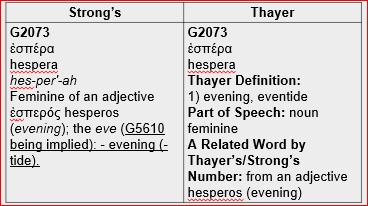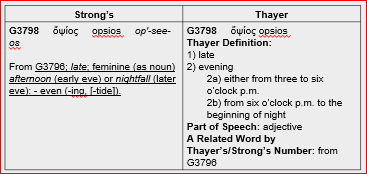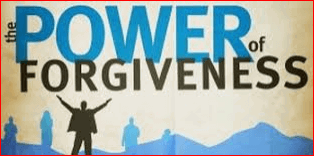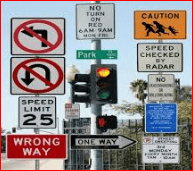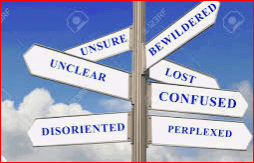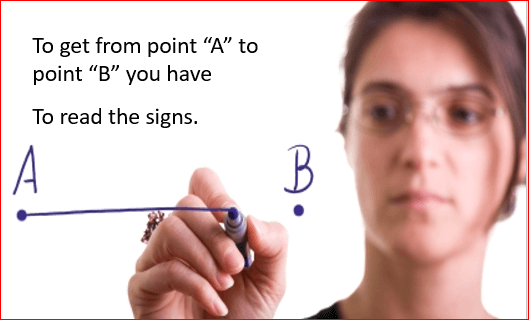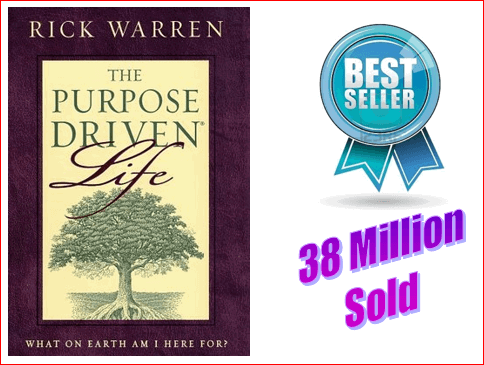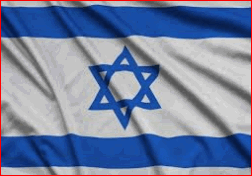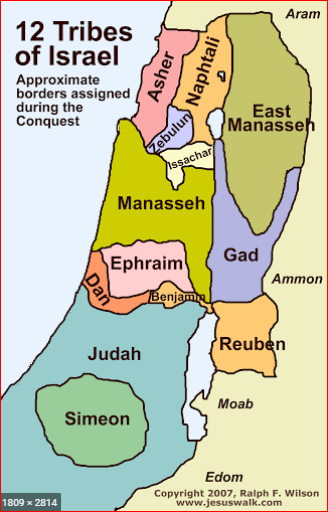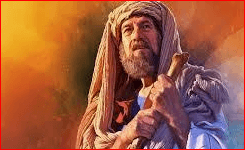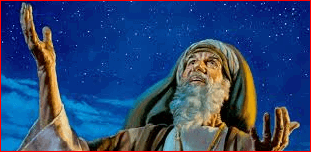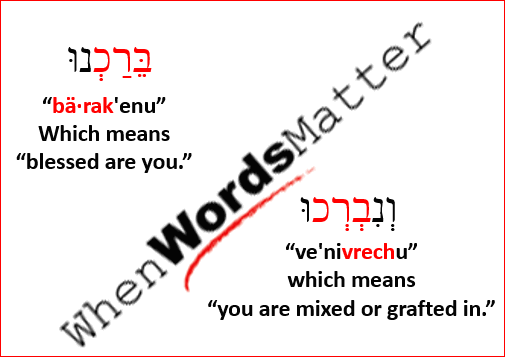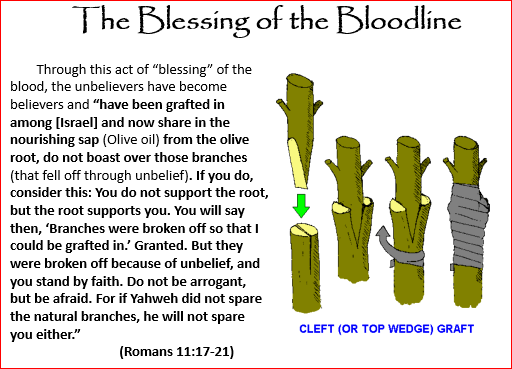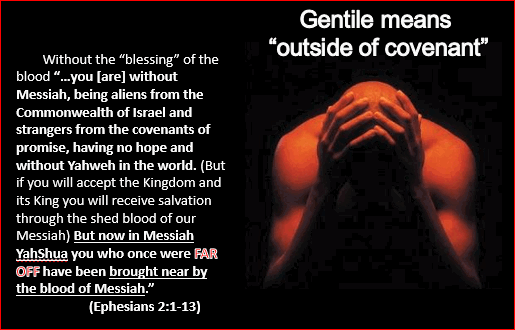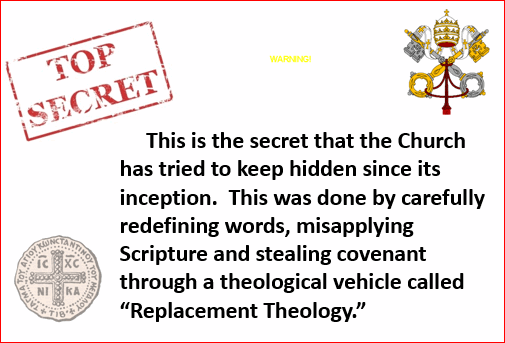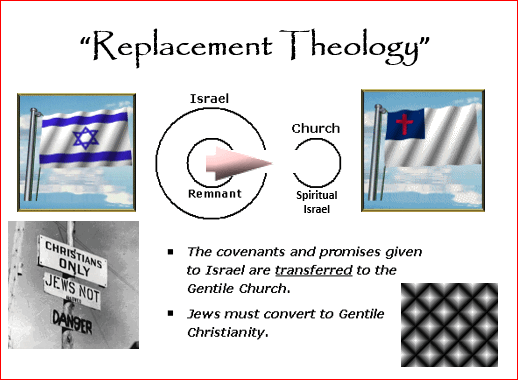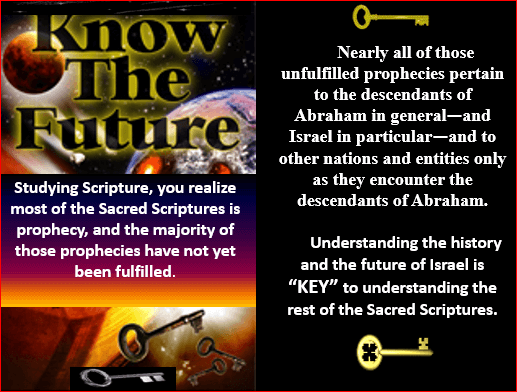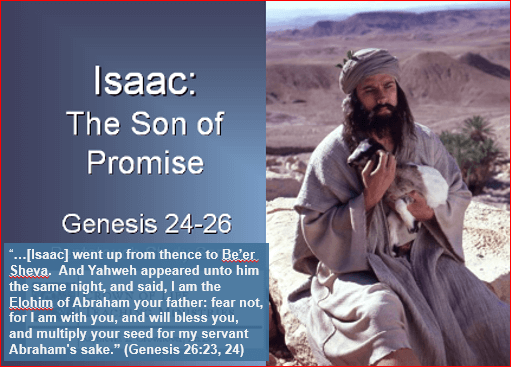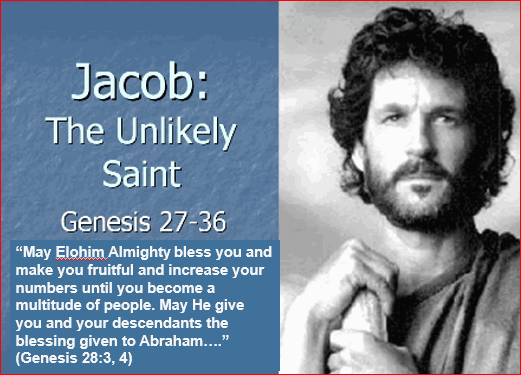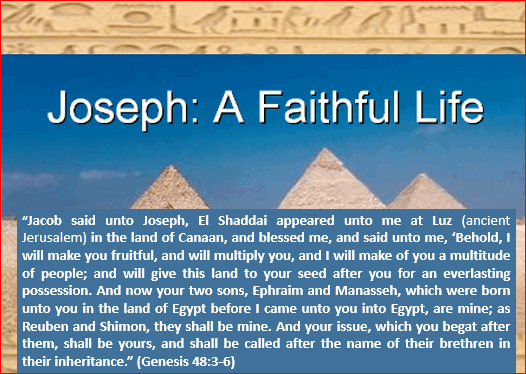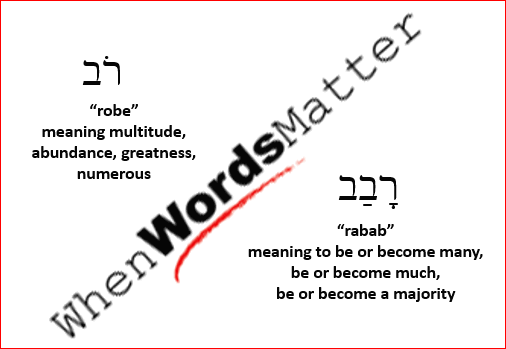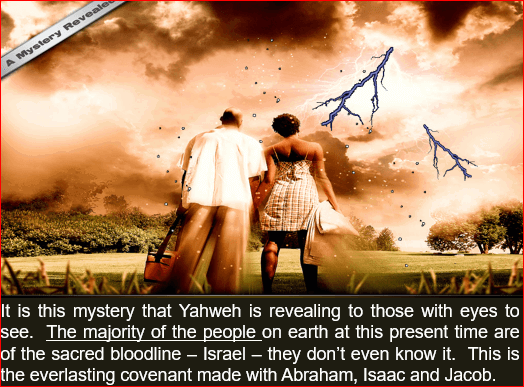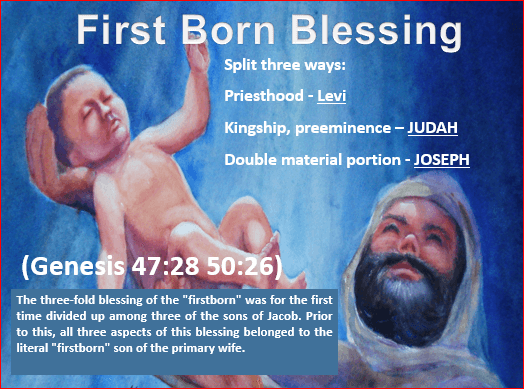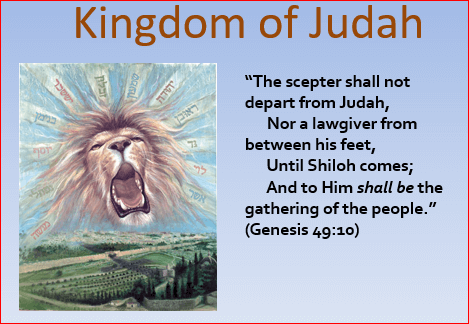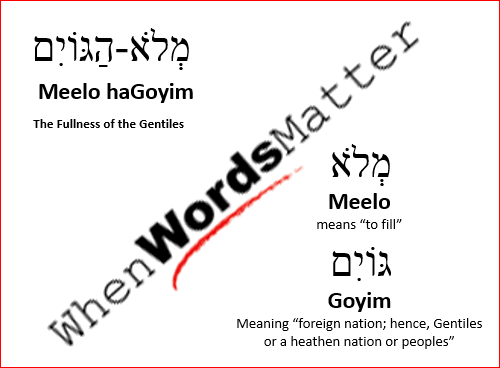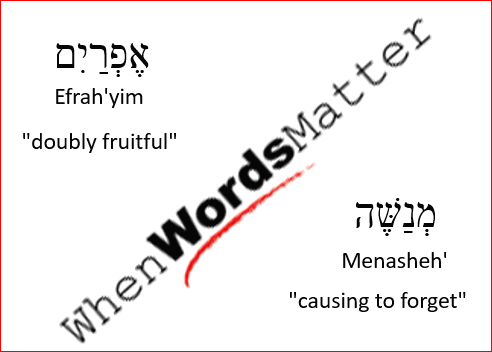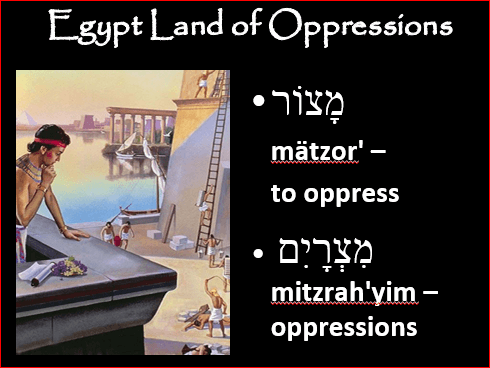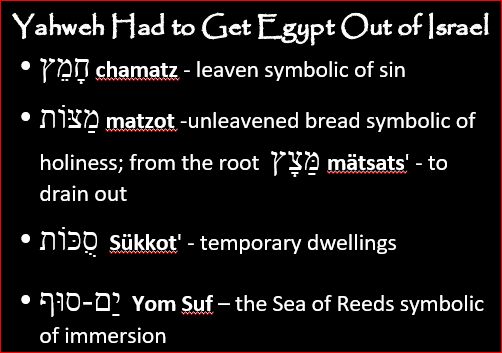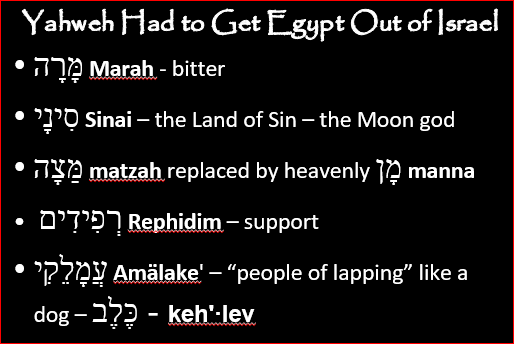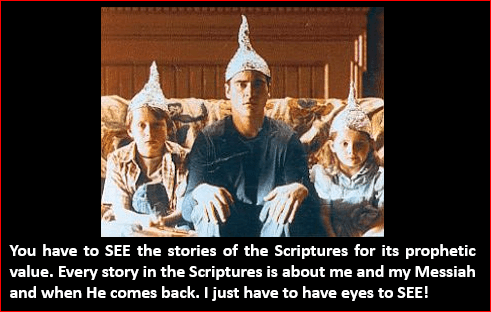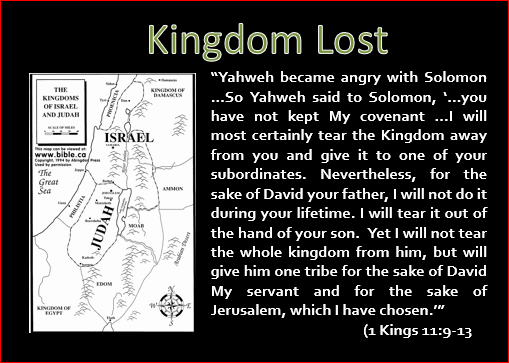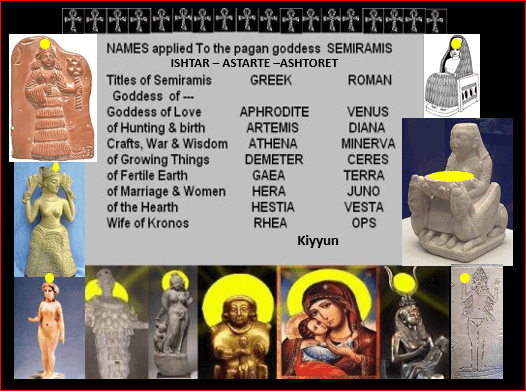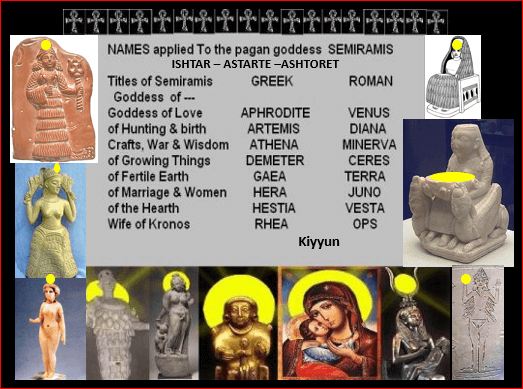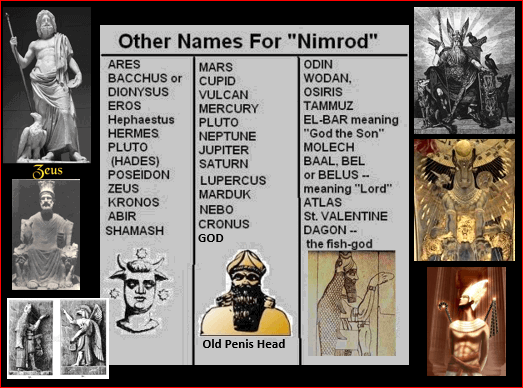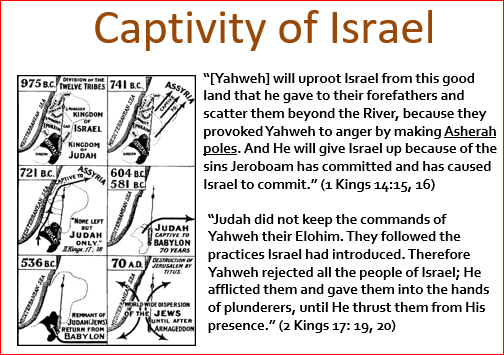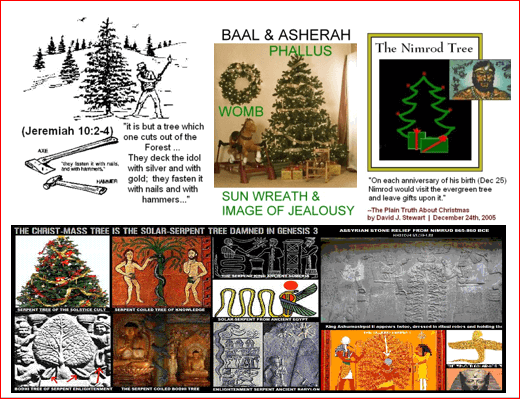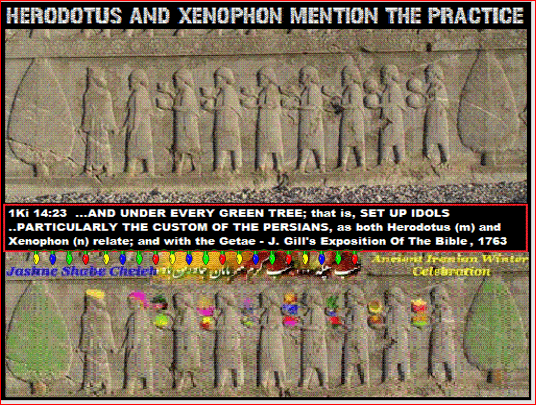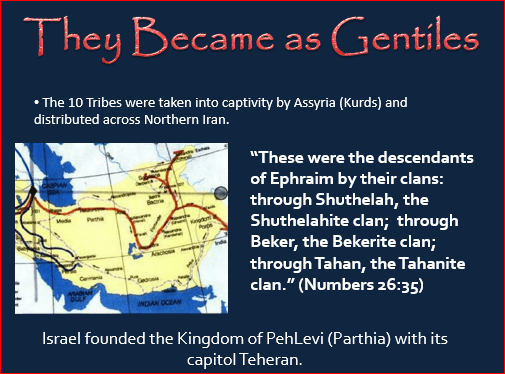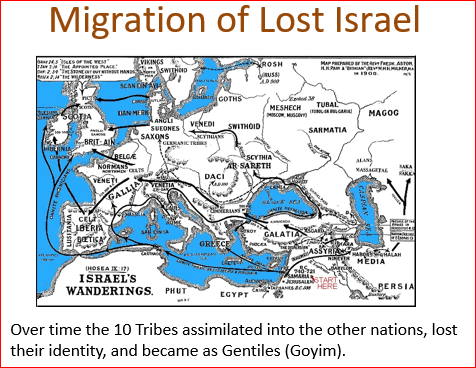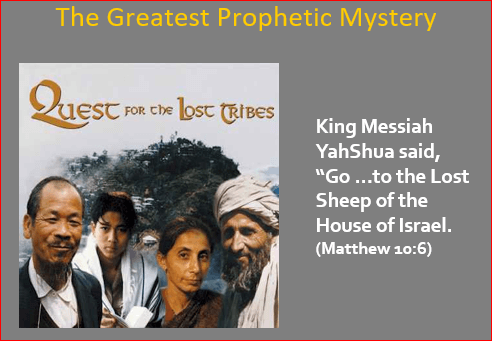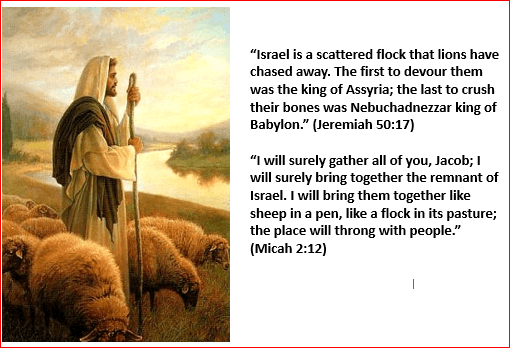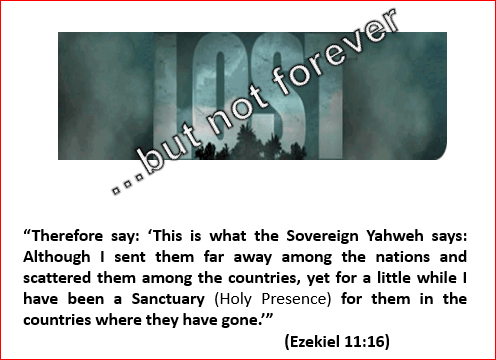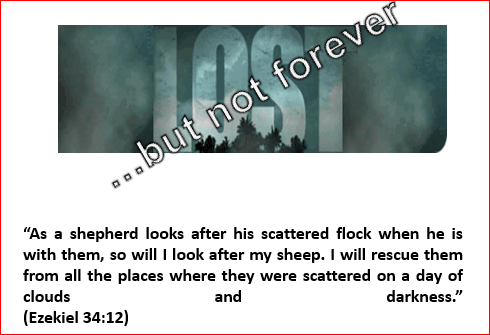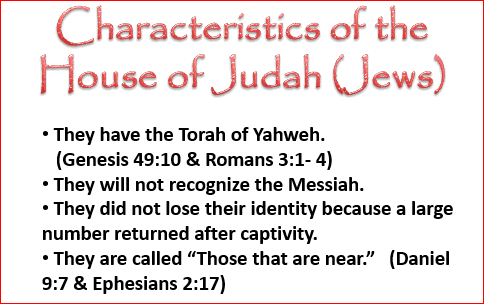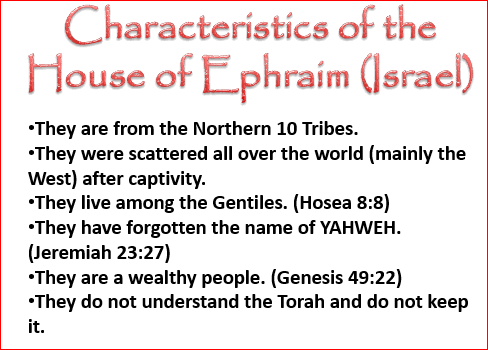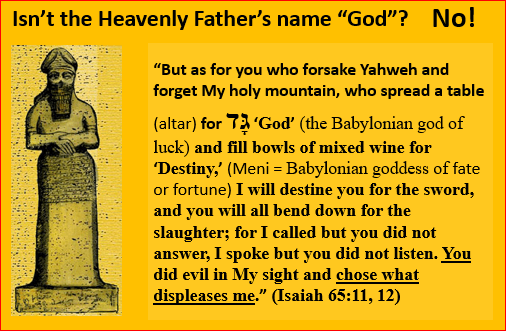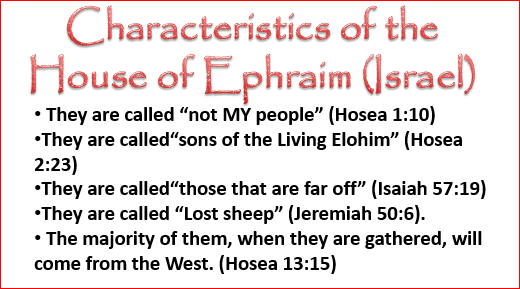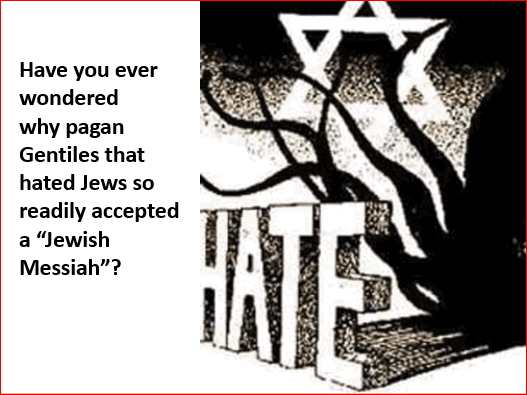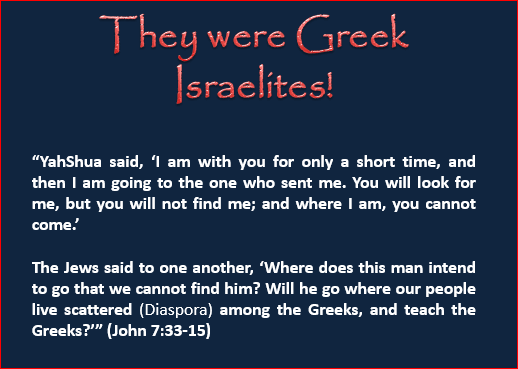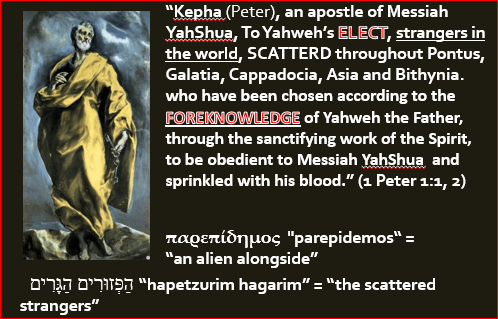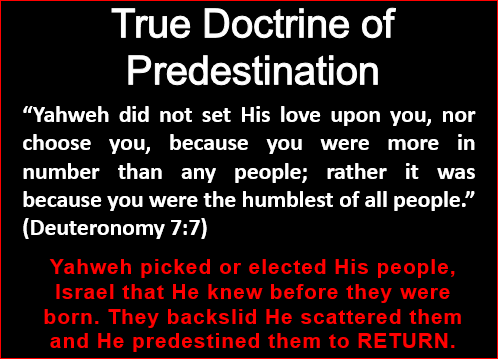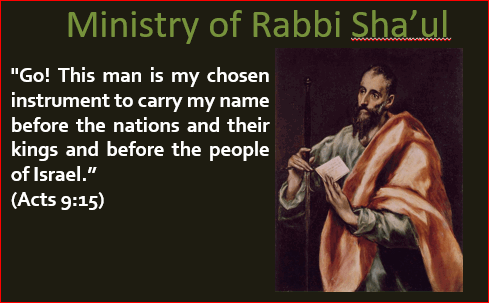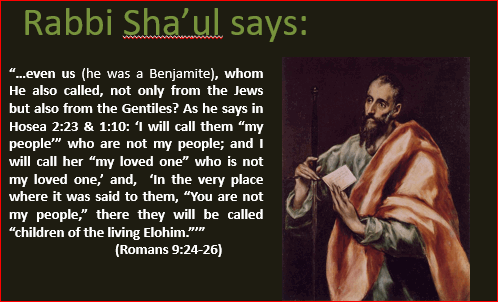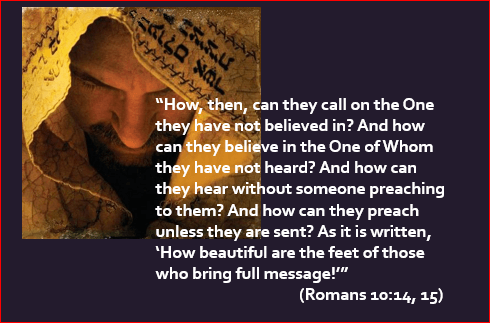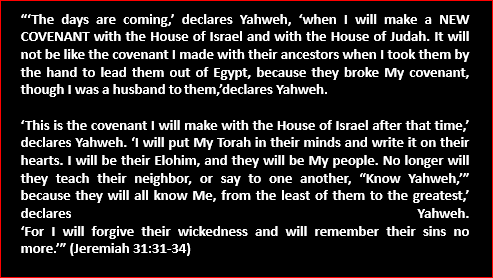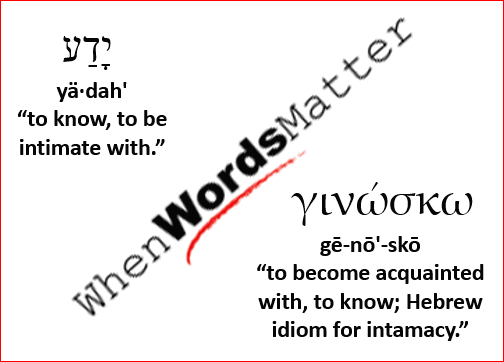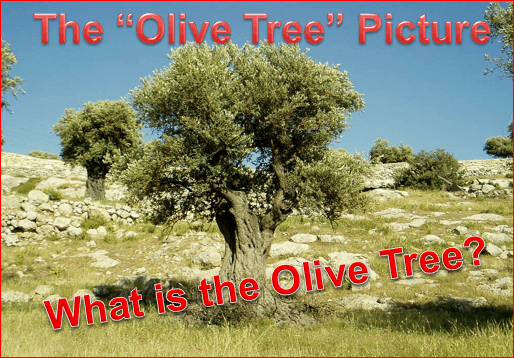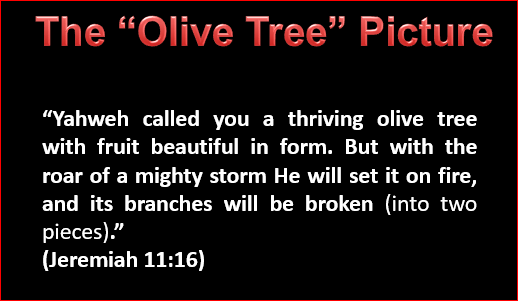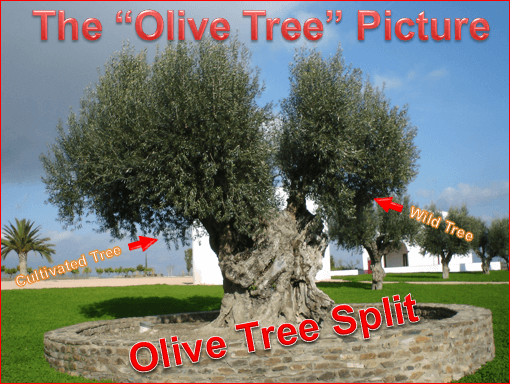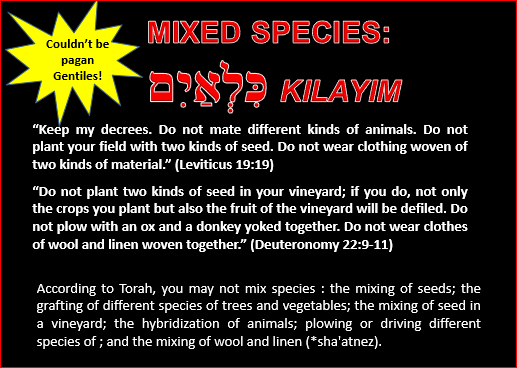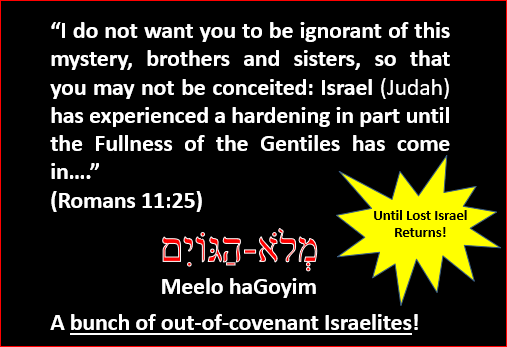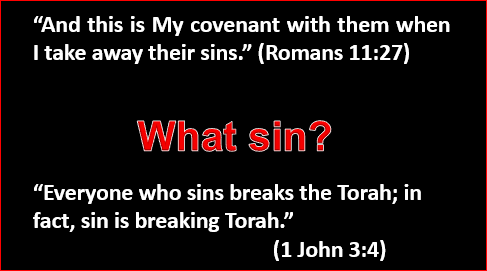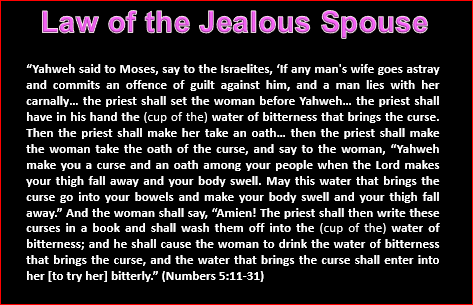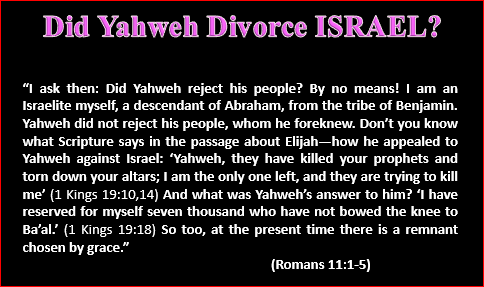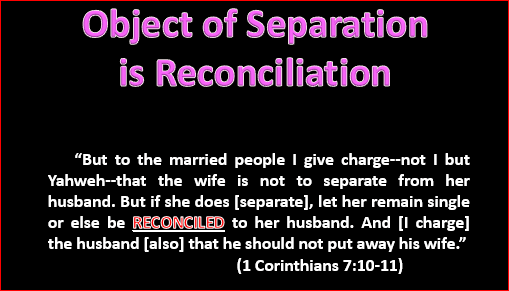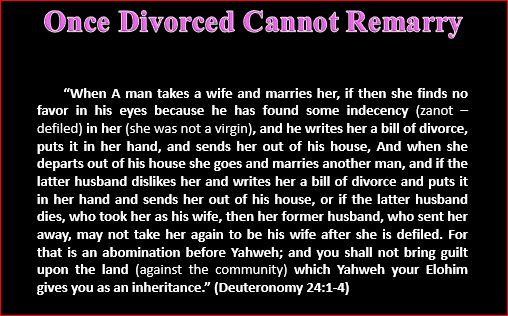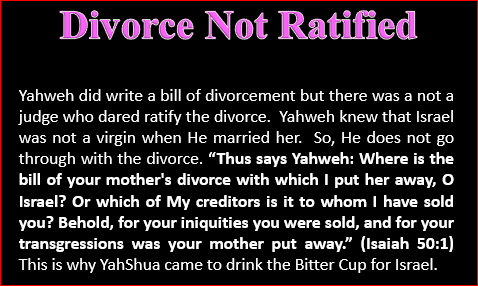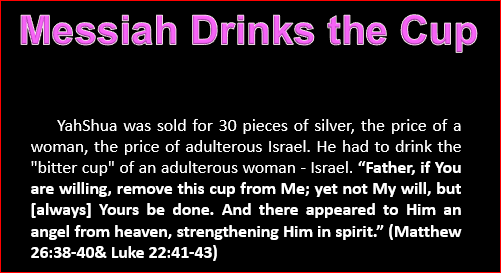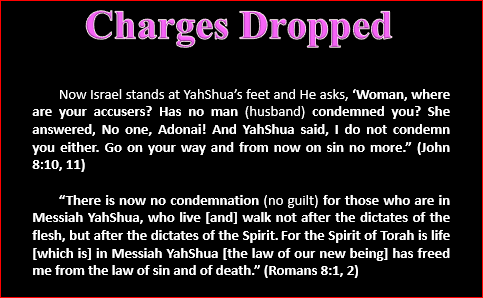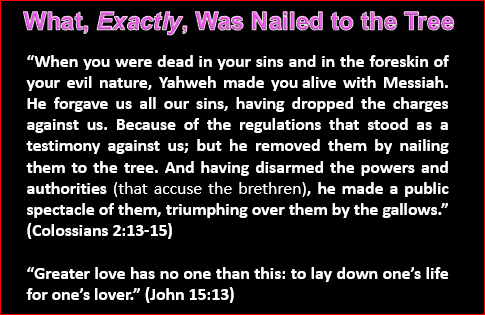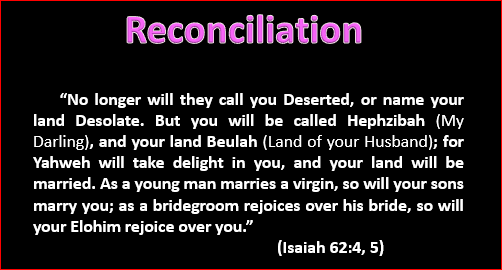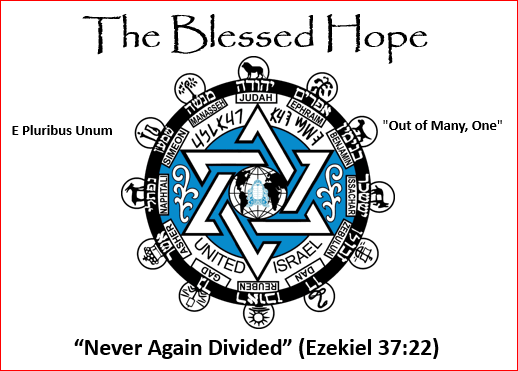Followers of the Messiah - the question, the story, the TEST
I have been studying the above question, & have found it to be a very serious, thought-provoking & significant question, who’s consequences are so far-reaching, that I believe it is really a “salvation” matter.
I therefore, cannot encourage you the reader, more strongly, to carefully examine & consider everything that I am about to present.
As usual, please do not believe anything I have written, UNTIL, you check it with Yahweh’s (God’s) Word.
I'd like to acknowledge the work of Steve Martin of the Assembly of Yahweh in North Alabama, for his videos on this subject. You can access these videos, & many others at https://www.youtube.com/channel/UC9rM83kBQ6DBdn66mFz8D6A/videos
While I agree with many of Steve Martin's ideas, I do not agree with them all, & as usual, I strongly encourage the reader, who wishes to view his, or any other person's videos, to TEST what is being said, before, taking any information into their belief system.
Isn’t it true that, if your faith is a Bible-based faith, then the very first thing that you know, that you know, that you know, is that the Bible (in the original languages & in the original context), is the "inspired" Word of Yahweh ?
Two significant verses that give us very important information about what Yahweh’s Word is, are Heb 4:12 & 1 Tim 3:16
Heb 4:12 For the Word of YAHWEH is living, and powerfully working, and sharper than every two-edged sword, and piercing as far as the division of both soul and spirit, of both joints and marrow and bones, and able to discern the thoughts and intentions of the heart. |
2Ti 3:16 All scripture is given by inspiration of Yahweh, and is profitable for doctrine, for reproof, for correction, for instruction in righteousness: |
So based on Heb 4:12, aren’t we told that Yahweh’s Word, the Bible is living, & working powerfully, & that it is sharper than any two-edged sword ? Doesn’t this verse also tell us that Yahweh’s Word is able to discern the thoughts & intentions of the heart ?
Based on 2 Tim 3:16, doesn’t Paul tell us that “Scripture”, Yahweh’s Word, was given by the inspiration of Yahweh, & that it is profitable for doctrine, for reproof, for correction, & for instruction in righteousness ?
So I wonder if you can agree that :
1: Yahweh's Word, the Bible (the Tanach & the Renewed Covenant) is the inspired (influenced), inerrant, unchanging, revealed and written word of Elohim (God).
2: Some of it is the actual spoken & written word of Yahweh and Yahushua (Jesus), and that much of it is written by men who were guided, motivated, influenced and stimulated by Elohim to write what they wrote.
3: The Bible was NOT originally written TO me – for example, Genesis to Deuteronomy was originally written TO and FOR the Hebrews (mainly by Moses), who were freed from their bondage in Egypt, by Yahweh. The Bible was written FOR me and you.
The Bible therefore, is only "inspired" in its original languages, & in its original context, and that there is no such thing, as
an “inspired translation".
4: In those original languages, Yahweh’s Word says what it says; not what I think it says, not what I believe it says, not what I’d like it to say, not what others say it says, and not necessarily what I’ve been taught that it says. This is usually true, although at times, Yahweh uses metaphors and Hebrew idioms or metaphors.
Dear readers, it is at this point that I am going to stop & ask, do you agree with all the above information ? If you do, please read on. If you don’t, then it is clear that we aren’t on the same page when it comes to the Bible. I strongly encourage you to re-examine those beliefs, & to check out what I have written in this presentation.
In this teaching, my goal is to uncover only Yahweh’s Truth.
The following quotes are about “Truth”.
The great auto pioneer, Henry Ford I, wrote: “The truth frequently seems unreasonable; the truth frequently is depressing; the truth sometimes seems to be evil; but it has the eternal advantage, it is the TRUTH, and what is built thereon, neither brings nor yields to confusion.”
Well-known TV and radio commentator Garner Ted Armstrong puts it another way: “To believe that we could be wrong about something--almost anything--is unfortunately a very ego-shattering experience for some (if not most) human beings. The exposure of.. .myths and biases can be so psychologically disruptive that it is tantamount to complete ego destruction.”
Armstrong continues, “When the....security blanket is gone, so is the particular niche of comfort into which we can conveniently creep when some challenging new thought comes along to disturb our mental processes. We do have our first line of defenses against truth, and they are far more effective than any radar set, or military advance-early-warning missile system. They unfailingly tell us that we are not wrong, but right after all !
Most people stubbornly resist any new truth with a whole series of first-line defenses, and several back-up systems to boot! But when truth finally exhausts all their defenses, they are forced to resort to that one-and-only tired old excuse: ‘Just who do you think you are? Where did you get your authority from ?’ If all else fails, people tend to fall back on this ‘put-down” (Good News Magazine, October 1975).
I wonder what you think of those quotes.
For those of you who know me well, you know that I like to study a subject as thoroughly as I can, by considering all sides of any debate. In the last few years, I have been regularly asking myself, “how do I know, that I know, that I know, that what I have believed, what I have been taught, what I have viewed, what I have read, or what I have heard, is absolutely accurate, true & correct ? After considerable thought, I came up with the only answer that I believe fits, namely, I must examine, consider & TEST, ALL the EVIDENCE that I can find !
With that in mind, I frequently apply the following principles to my studies, particularly, when I study Yahweh’s Word. I wonder if you can agree with them, & perhaps even apply them to your own studies.
Even if I have studied an issue carefully before, if someone presents information that contradicts, or challenges what I currently believe is true, re-examining it, will either strengthen that belief, or expose an error I may have made. 1 Pet 3:15 tells us that we must be willing to give an answer to anyone asking for our reasons concerning the hope of our faith.
1Pe 3:15 But sanctify the Lord God in your hearts: and be ready always to give an answer to every man that asketh you a reason of the hope that is in you with meekness and fear:
If we honestly seek God 's truth, and we are shown that we are in error, we will either cease being honest, or we will change our belief to repair the error.
During the several years I have been carefully studying God’s Word, I came to a deep awareness that when I was being deceived, I was totally unaware of the deception ! Once I realised that I had been deceived, the deception was obvious, and I decided that :
1: I do not want to disbelieve the truth,
2: I certainly do not want to believe a lie,
3: I must know precisely what I believe, and more importantly, why I believe it,
4: I must be very careful what I really believe, because, it will totally control the way I think, and what I do.
5: I must be very careful not to be deceived because I have found that it is easy to produce a very convincing study, that is
totally wrong !
6: I must be aware of those who make statements without giving any scriptural support or evidence.
With all this in mind, may I present my response to find the Truth of the very important question, “is your faith, a Bible-based faith” ?
While the answer to the question, “is your faith, a Bible-based faith ?”, may seem obvious, I believe it is not as apparent as it may seem at first, & that it is of the upmost importance, & at least one aspect of it, is a “Salvation” matter.
What I am about to write, will examine this subject in quite a bit of detail.
Again, in Heb 4:12, aren’t we told that Yahweh’s words are living, & are therefore, alive ? Doesn’t 2 Tim 3:15 explain that “all scripture is written by the inspiration of the Holy Spirit” ?
If Yahweh’s Word, the Bible, is alive, doesn’t that mean that no part of it ever died ?
If, as Paul tells us in 2 Tim 3:15, Yahweh’s Word was written by the inspiration of the Holy Spirit, don’t we know that it was therefore a collection of “what Yahweh said”, & that it was written by holy men who were led, & motivated by that Holy Spirit of Yahweh ?
Don’t we know that Yahweh breathed His words, & that from Exod 31:18, that He actually wrote them on two tablets of stone ? Don’t Exod 33:11a & Deut 5:4 tell us that Yahweh spoke to Moses, “face to face”, thereby communicating to Moses His accurate & precise instructions ?
Exo 31:18 And when He finished speaking with him on Mount Sinai, He gave to Moses the two tablets of the testimony, tablets of stone, written by the finger of Elohim. |
Exo 33:11a And YAHWEH would speak to Moses face to face, as a man speaks to his friend. |
Deu 5:4 YAHWEH talked with you face to face in the mountain out of the midst of the fire. |
So, if your faith is a Bible-based faith, shouldn’t every believer be willing to examine, & TEST their faith, to determine whether it really is Bible-based ?
Have you ever wondered why Messiah Yahushua gave us at least three important warnings in Matt 24:4-5, Matt 7:21-23 & Matt 7:13 ? Shouldn’t the three warnings that Yahushua spoke about in these verses, “alarm us” ? If we paid careful attention to what He said, wouldn’t it alert us all, that we really need to do a self-examination of the things that we believe ?
Let’s check them out.
In Matt 24:4-5, we read :
Mat 24:4 And Jesus answered and said unto them, Take heed that no man deceive you. Mat 24:5 For many shall come in my name, saying, I am Christ; and shall deceive many. (KJV) |
Perhaps the first thing we should notice, is that Yahushua is speaking to His disciples – He is not making a general statement to the Jewish community.
Q: In verse 4, Yahushua says, “take heed” - what does “take heed” mean ?
A: I believe that He is telling His apostles, “I, Yahushua, am about to present to you a real danger”, meaning each of the
apostles needs to be on “full alert” as to what He is about to tell them. Surely, Yahushua would not tell them to be on “full
alert”, unless there was a real & immediate danger ?
Well, before we get to the specific danger, let’s examine some important points in these verses.
The first thing to be aware of is, that the warning begins with “take heed that no man deceive you”, so the concept of “deception” is front & centre in this warning. I’ll have more to write about that later.
Q: What is the danger Yahushua is seriously alerting His apostles to ?
A: I believe that verse 5 reveals the answer – “For many shall come in my name” saying, I am Christ, & shall deceive many."
Notice it says “many” shall come in my name, & shall deceive “many”.
Q: How many people have you heard stand up & say that they were “Jesus” or “Christ” ?
A: Google says 24 in the 20th century, & 5 in the 21st century
Clearly, these numbers are not “many”, so Matt 24:4 & 5 can’t be referring to these people, who actually stand up & say, “I am Jesus”, or “I am Christ”!
So perhaps we have misinterpreted part of verse 5. When Yahushua tells the apostles that “many shall come in My name”, it can’t be a reference to His actual name, Yahushua or Jesus, or His title as Messiah or Christ.
Q: So what did it mean to the original audience ?
A: If it didn’t mean to “come in His personal name or title”, then it mostly likely means, they would “represent Him” or come in
“His authority”.
How can we test to see if “representing Him” or “coming in His authority”, could be a correct understanding of the phrase, “for many shall come in My name” ?
If we look at the Book of Romans, specifically Rom 15:16, doesn’t Paul tell us that he was a “minister of Jesus Christ”, & that he “ministered the Gospel of Yahweh” ?
Rom 15:16 That I should be the minister of Jesus Christ to the Gentiles, ministering the gospel of God |
In today’s understanding, isn’t it fair to say, that Christian ministers, pastors & evangelists, are “ministers of Jesus Christ”, & wouldn’t they claim to “represent Him”, and/or, are “working in His authority” ?
Let’s leave it at that for now.
When examining these two verses more carefully, I noticed that the word “Christ”, which comes from the Greek word, “Christos”, is not a proper or personal name, & therefore should have been translated, & not transliterated, as if it were a proper or personal name. Could this be an example of translator “bias” ?
Q: So what is the meaning of the Greek word, “Christos” ?
A: Strong’s Concordance & Thayer’s Lexicon tell us it means “anointed”
So if we re-write the verse by inserting the correct meaning of Christos, don’t we get :
Mat 24:4 And Yahushua answered and said unto them, Take heed that no man deceive you. Mat 24:5 For many shall come in my name, saying, I am anointed; and shall deceive many |
So it seems that Yahushua is warning His disciples about those who claim to be represent Him, & claim to be “anointed”, not that they are actually “Christ” ?
I haven’t been able to find a statistic, but during my lifetime, numerous Internet & denominational pastors, teachers & evangelists have claimed to be “anointed”. Would you agree ?
Could this be what Yahushua is warning His disciples about in Matt 24:4-5 ?
So, based on my investigation, could the following be a more accurate translation of Matt 24:4-5 ?
Mat 24:4 And Yahushua answered and said unto them, Take heed (be on full alert) that no man deceive you. Mat 24:5 For many shall come in my name, (representing Me or in My authority), saying, I am anointed; and shall deceive many |
If we read down to Matt 24:11-12, we read of “false prophets” rising up, & deceiving many.
Mat 24:11 “And many false prophets shall rise up and lead many astray. Mat 24:12 “And because of the increase in lawlessness, the love of many shall become cold. |
Q: What is a false prophet ?
A: Isn’t a false prophet an “imposter” who “speaks” ?
Wouldn’t Matt 24:11 read, “many false (an imposter) prophets (one who speaks) shall rise up & shall deceive many” ? Isn’t this a re-statement of Matt 24:5 ?
Q: From Matt 24:12, what is going to cause the “love of many to wax cold” ?
A: Doesn’t verse 12 tell us that it is lawlessness, which according to 1 John 3:4 is “the violation of the instruction (the Torah)", given in the Bible ?
Q: Why then are people violating the instruction (the Torah) given in the Bible ?
A: Based on Yahushua’s warning, isn’t it because they got deceived by a false teacher (a false prophet or imposter), who said he represented Yahushua, & saying they was “anointed” – in doing this, the false prophet taught the people that they didn’t have to keep the Torah (law), & were therefore, “lawless” ?
So to summarise - in the last days, we need to be alarmed & alerted by carefully noticing what Yahushua said in Matt 24:4-5, namely, many imposters are going to stand up, claiming to represent Him, & claiming to be “anointed” - they will deceive many, into believing that they no longer need to keep Yahweh’s Torah that is written in the Bible.
What is the second warning that Yahushua alerted His disciples & us to ?
In Matt 7:21-23, we read :
Mat 7:21 Not every one that saith unto me, Lord, Lord, shall enter into the kingdom of heaven; but he that doeth the will of my Father which is in heaven. Mat 7:22 Many will say to me in that day, Lord, Lord, have we not prophesied in thy name? and in thy name have cast out devils? and in thy name done many wonderful works? Mat 7:23 And then will I profess unto them, I never knew you: depart from me, ye that work iniquity.(KJV) |
If we are taking notice of the warnings that Yahushua gave, shouldn’t we be willing to TEST them, to see if they are Bible-based or not ?
Q: What is a prevalent doctrine being taught by denominations today ?
A: Isn’t it that, “all you have to do is call Jesus, your Lord, & you’ll go to heaven” ?
Notice that Yahushua says something very different to Matt 7:21 !
Q: Who does Yahushua say will enter into the kingdom of heaven ?
A: Yahushua says, “he that does the will of my Father” !
Q: How do we know what the Father’s will is ?
A: He expresses it in His Word, specifically, His instructions – His Torah.
Q: Don’t we notice Matt 7:22, uses the word “many”, as we did in Matt 24:4-5 ?
Q: Won’t these “many” think that the faith that they have embraced all of their lives, was a Bible-based faith, but doesn’t Yahushua say in Matt 7:23, that “many of them”, will be wrong, & He will say, “depart from Me, I never knew you – you who worked iniquity (lawlessness)” ?
Q: Based on Matt 7:22, won’t these “many” think that they are representing Yahushua in everything they do – won’t they think that just because they see miracles & signs, & just because they cast out demons, & do mighty works, they will think, based on those things (what they’ve experienced, & what they have been a part of), it assures them that their faith is Bible-based faith ?
Q: Based on what we have witnessed in the world today, won’t the "many" defend it with everything that they have ? But, based on what Yahushua says in Matt 7:22, on the day of judgment, the "many" will find out that they listened to an imposter, who told them that he was “anointed”, & convinced them, based on that “anointing”, to ignore what was written in the Bible, & therefore, they have strayed away from, & established a belief system, that isn’t based on what the Bible says ?
Isn’t Yahushua really saying – “many” will be deceived - that they are going to live deceived - that they will defend their deception during their lives, & will die deceived, & even at judgment, they are going to defend their deception ?
Aren’t they going to say to Yahushua, “we did all this in Your name, as Your representative, & in Your authority” ?
Q: Based on Matt 7:22-23, what will Yahushua then say to them after this ?
A: He will say, “I will profess to them that I never knew you – depart from Me that work iniquity" (lawlessness).
Q: What law is Yahushua talking about ?
A: Surely it can only be, the biblical Torah – Yahweh’s instructions for living a healthy, happy & successful life.
In Matt 7:21-23, isn’t Yahushua warning His apostles, & us, not to be deceived into embracing a faith that is not Bible-based, even though it will seem spiritual, & “many” will think that they are right – surely, the fact that it rejects the written Torah in the Bible is evidence that is not a Bible-based faith ?
There is third warning from Yahushua in Matt 7:13-14 – please read it carefully.
Mat 7:13 Enter ye in at the strait gate: for wide is the gate, and broad is the way, that leadeth to destruction, and many there be which go in thereat: Mat 7:14 Because strait is the gate, and narrow is the way, which leadeth unto life, and few there be that find it. (KJV) |
Can we please take a few minutes to analyse these verse ?
If there is a wide gate, doesn’t that mean that “many” go through it, & doesn’t v13 say that they are going on their way to destruction ?
Q: What does the Greek word, translated as “wide” mean ?
A: Doesn’t it have the sense of “being fabricated, & pushed out”, in order to allow “many” to go through it ?
Q: Isn’t it true that because “the gate” is wide, the intention is, let’s not be so strict on who we let in – that everyone is welcome as they are – let’s not have any restrictions on who can be part of the fellowship ?
Q: Doesn’t the Greek word translated as “broad” mean spacious, & so that there is a lot of room for every belief, every ritual & every lifestyle – we welcome, & love everyone, regardless of their lifestyle ? Isn’t this happening today ?
Q: Doesn’t Yahushua say that “the way to life is through the straight gate”, & “that way is narrow” ? Doesn’t that indicate that the way through this gate is quite small, & that it controls who can pass through, & how they are to pass through ? Clearly, you can’t enter just anywhere ?
Q: Isn’t the word translated as “narrow” indicating a “rut” or a “well-trodden path” ?
Q: In the “broad” way, aren’t people always coming up with new ways to express your faith, but in the way that leads to life, “the straight & narrow” way, there is a well-worn rut-like path that was put there before us, a path that we are to find – it leads to life ?
Q: Don’t we have to go through the straight & narrow gate to find the well-worn, rut-like path, & then walk in that narrow path ?
So based on Matt 7:13-14, shouldn’t our faith be a faith that is based on the old paths that are revealed to us through Yahweh’s Torah ?
I know that we really, really want to be right, to be correct, & it is one thing to think you are right, but shouldn’t we be willing to put our beliefs to a serious TEST ?
Surely it is true that, when we are deceived, we don’t know that we are deceived ? So if you might have been deceived by a person who said that they represented Yahushua, & that they were “anointed”, wouldn’t it be prudent & wise to TEST those beliefs ? If you are afraid to TEST your faith, then surely your faith isn’t worth having ?
Do we have any biblical evidence to support these ideas ?
Yes there is ! I have a story, which is a paraphrase of what is written in the Bible, 1Kings chapters, 12 & 13. I am asking you to read this story very carefully, & see if you can identify the lesson that it teaches. I believe that if you do this, you will know for a certainty, whether you have been deceived or not ?
The Story & its Lessons
Saul was the first king of Israel, of all twelve tribes - he died, and David became King. David died, and his son Solomon became King. Solomon died, and his son Rehoboam became king, but Rehoboam did not become king of all twelve tribes.
There was a rift, & the ten northern tribes weren't sure if they wanted Rehoboam to be king - they met with him, & they talked with him, but they didn't like the things he said, and so they revolted. They said, "now we’ll have no part with the house of David, Rehoboam is not our King", & so they anointed Jeroboam to be their king.
With Jeroboam being the king, the ten northern tribes had a dilemma, and the dilemma was that the temple was in Jerusalem, which is in the southern kingdom, & all of the feasts of Yahweh were held in Jerusalem. Jeroboam feared that during the commanded feasts of Yahweh, the people would return to Jerusalem, & they would get so caught up in the beauty of these holy convocations, and the celebrations, that they would repent that they had rejected Rehoboam, and they'd want to return and unite the twelve tribes all back together again – Jeroboam feared that they'd kick him out from being king, or even kill him, so what he decided to do, was to create his own holy day (1 Kings 12:32).
Let’s take a careful note that :
Jeroboam created a holy day, that was different from the commanded, seven biblical feasts of Yahweh.
The next thing that Jeroboam did was, he created two golden calves - now listen carefully to what he said when he set up these two golden calves “whereupon the king took counsel and made two calves of gold, and he said unto them, it's too much for you to go up to Jerusalem - behold your Elohim, O Israel which brought you up out of the land of Egypt” (1Kings 12:28).
Let’s make our second careful note that :
Jeroboam told his people that they no longer had to keep the seven feasts established by Yahweh.
What logic did Jeroboam use to convince the people that they no longer needed to keep Yahweh’s feasts ? Well, as we saw in 1 Kings 12:28, Jeroboam said “it is too much”, implying that Yahweh would never expect them to go back to Jerusalem keep all those feasts ! Jeroboam deceived the people, & convinced them that, they didn't have to keep Yahweh’s feasts anymore.
Notice in the same verse, what we see Jeroboam doing ! He's not telling them, “let's start worshipping a different elohim than they worship in Judah - he's telling them that they can worship Yahweh in their own way, not the way that Yahweh commanded."
Now for our careful note number three :
Jeroboam re-assigned new meaning to pagan images and rituals.
Shouldn’t we note that at no time do Jeroboam’s golden calves represent Yahweh ? These golden calves represented pagan deities, but Jeroboam re-assigns new meaning to this pagan image, and all the rituals involved with that pagan image.
Jeroboam reassigned new meaning to those golden calves, and told the people these calves now represent Yahweh, even though those castes had nothing to do with Yahweh - Jeroboam just said that they did. Somehow, the people seem to have forgotten about the “golden calf” rebellion at Mt Sinai, & its consequences !
So when the people came to worship those calves, & you really need to understand what was in their hearts ! They were not worshiping a pagan god - those calves represented in their hearts, Yahweh, because of what Jeroboam had taught them they were. They sincerely thought in their hearts, that they were worshiping Yahweh.
Well, it's important to note that Yahweh wasn't pleased with this - He wasn't impressed by this new direction that Jeroboam was leading the people, so Yahweh sent a prophet from Judah to confront Jeroboam. It was on a day that Jeroboam was at the altar that he had built, & he was burning incense when the prophet, a young man came into the city. We're not even told what the prophet’s name is, but the prophet came just as Jeroboam was standing there burning incense, & acting “all spiritual”, in front of the people (1 Kings 13:1).
When, this prophet confronts Jeroboam – he, the prophet, cried against the altar in the words of Yahweh (1 Kings 13:2), and said “o altar thus saith Yahweh; behold a child shall be born into the house of David; Josiah by name and upon you shall he offer the priest of the high places that burn incense upon you and men's bones shall he burn upon you”.
The prophet continued, “and he gave a sign the same day saying, this is the sign which Yahweh hath spoken; behold the altar shall be rent and the ashes that are upon it shall be poured”.
Please check our fourth careful note :
This prophet represents those whose faith, is a Bible-based faith.
Again, what is written in the Bible, is the Word of Yahweh. This prophet’s faith is based on what Yahweh says, & he is doing what Yahweh had said. Don’t we want to know what Yahweh said, & don’t we want to do what He said we should do, no matter how difficult life is going to be - don’t we want a life, based on Yahweh's words ?
This prophet was not there to go along with the teachings of Jeroboam - he was not there to find out the newest instructions of the priest that Jeroboam had appointed - he wasn't there to participate with Jeroboam in his new feast, or to learn from Jeroboam how this golden calf could represent Yahweh. The prophet’s life and his actions are based on what Yahweh had said.
It is extremely important that we see the picture exactly as it is presented to us. Jeroboam had deceived his people into thinking that they can worship Yahweh, their way. Jeroboam had established his & his people’s own holy day - he had brought in pagan symbols, & he has reassigned new meaning to them, so that the people now think that it's okay to use those images as they seek to worship Yahweh.
When you confront someone for not keeping a commandment, or something about their belief, don’t they say “Yahweh knows my heart” ? Let me explain - these people are not seeking to worship a pagan deity - they have been told that this pagan thing now represents Yahweh, so in their heart, they would have said to the young Prophet, “we're here to worship Yahweh”.
The point is you cannot participate in pagan activities, and say, & believe that is worship of Yahweh.
See the picture here - the “many” are following Jeroboam, while the young prophet stands by himself. What did Yahushua tell us ? Didn’t He say that “many” will be deceived ? Again, aren’t the “many” following Jeroboam ?
May I stress again, Yahweh sends a prophet to warn the people that they are being deceived by Jeroboam, and by the priests that he's hired - the prophet did not come in and participate, because his life is governed by what Yahweh has said - he cannot join in, and participate in the false holy day - he cannot join in, and seek to praise Yahweh through that golden calf, and he cannot burn incense at that altar !
Why - because his faith is a Bible-based faith - his faith is based on what Yahweh says, and he know that Yahweh forbad every bit of what Jeroboam & his people are doing. The prophet does what Yahweh says do - he represents “the few”.
Again, the prophet walks up to the altar where Jeroboam is burning incense, and speaks to the altar.
From his lofty position Jeroboam points at the prophet and says, “seize him”. At this point then, three things happened. One, men moved immediately to do what the king said, namely, to seize that Prophet – second, the altar rent in two, and the ashes that were on it, poured out, & three, Jeroboam’s hand seized up - it locked in place as he tried to draw it back.
Jeroboam is trying to get his hand and arm to work normally, but they won't come. His intention was to have that prophet seized, & at the very least run out of town, possibly imprisoned, more than likely killed, but Jeroboam has got a problem – he can’t control his hand & arm. When the men bring the young prophet in front of him, Jeroboam said to the prophet – do you think you could pray for me, & ask Yahweh to fix my hand & arm. The young prophet prayed to Yahweh, and Yahweh released his arm & his hand.
Now, Jeroboam said thank you, and asks the young prophet to come home with him today. Jeroboam says, “I invite you to come & refresh yourself, and I want to give you a reward”. The prophet says, “I will not go to your home even if you promise me half of your house - I will not eat bread nor will I drink water in this place, and I will not return home the same way that I came” (1 Kings 13:7-8).
Please note - there were many people there, supposedly worshiping Yahweh. Jeroboam is the king - everybody there who heard what this young prophet just said to the King, thinks the young Prophet is certifiably crazy. Who in the right mind would tell a king, no - who would refuse to go to the king’s house - who would refuse to be refreshed at the king’s house - who would refuse the king’s food - who would refuse to sit down and have dinner with the king, and why would you go home a different way ? The young prophet sounded crazy to everybody that heard him. The “many” thought they had to think that he must be part of some strange cult, to act in such a weird way, because there's not a one of them standing there, that would have said no, to what was the king was saying.
But the young Prophet wasn't crazy - instead his life & his faith were all based on the Word of Yahweh.
It's worth pausing here to note that sometimes when you are around the “many” who have been deceived, that you are going to be the strange one – the “many” are going to think you are really odd or weird. Why ? Because they are the “many” who are deceived, and you are part of the “few”, who are living your life & faith, based on Yahweh’s Word !
Back to our story.
The prophet boldly walks away, & heads back towards Judah on a different route just like he said he would, & as he had been instructed by Yahweh.
Now there is an old prophet in the northern kingdom who was not at the altar that day, but his sons were, and they came running home after witnessing this incident. They say to their father, the old prophet, “dad, you're not going believe what happened at church today – today this prophet from Judah came up & spoke a curse on the altar that king Jeroboam had built, and he, the prophet, did it while Jeroboam was burning incense - the prophet prophesied that the altar would split & the ashes would spill, & it happened just like he said it would. The king was angry & commanded that the prophet be seized, but then the King's hand went all crazy, & then the prophet prayed, and the king's hand was restored, and dad, this is the crazy part, the king invited this prophet to his house for a meal, and a reward, and the prophet said no”.
The old prophet asked his sons which way did the prophet go, and they told him, and the old prophet said "saddle me a donkey," and they did. The old prophet got on his donkey, & he took off in the direction they said, and soon he came upon that young prophet sitting under an oak tree. The old prophet asked him, “are you the man of Yahweh that came up from Judah”, and the young prophet said, “I am”.
The old prophet said "come home with me and eat bread". It was evident that this young man was tired and weary, & he was famished. He is sitting under an oak tree, & he's thirsty - he's hungry - he's fatigued. The old prophet says, "come home with me and eat bread", but this young man's life is governed by the Word of Yahweh, not by his needs or his circumstances - he doesn't live by bread alone, he lives by every word that proceeds out of the mouth of Yahweh. So he says to the old prophet that “I may not return with you, nor go in with you, neither will I eat bread nor drink water with you in this place, for it was said to me by the Word of Yahweh, ‘you shall eat no bread nor drink water there nor turn again to go by the way that you came’".
So again, the young prophet’s life, his actions, & his decisions are based on what Yahweh said, and that is the way of life that is the path of life - that's what keeps you safe ! The young man understands that he cannot be influenced by kings - he understands he cannot be influenced by the majority, the “many”, and he understands that he cannot be influenced by other prophets.
Then it happened that old prophet said to the young man, I'm a prophet too, just like you - I am “anointed” - I'm here because I had an angel appear to me - the angel said “I’ve got a word for you from Yahweh. That angel said, I'm to bring you back to my house, and give you something to eat".
Now put yourself again in the young prophet’s position - he's hungry - he's thirsty - he's got a long way to go to get back home, & he's not so arrogant to believe that he's the only prophet that follows Yahweh. This old prophet said an angel appeared - that's a sign & a wonder - this prophet said that Yahweh said so.
No doubt the young prophet had start thinking, well this is awesome ! It makes sense. The young prophet could very well be thinking that “Yahweh was just testing me to see if I'd obey Him or not, and now that He knows I'll obey Him, surely He doesn't want me to walk all the way back home without something to eat, and something to drink, & surely He sent this prophet so that I could go to his house, not the wicked Jeroboam”. So he said, no, I'm going to go to the old prophet, the anointed one’s house, and I'll eat with him.
The young prophet shouted halleluyah, & went to the old prophet’s home. They sat down and talked about all the great things that Yahweh had done that day - they ate a meal, and while they're eating their meal, the Word of Yahweh came to the old prophet, and he cried unto the man of Yahweh that came up from Judah, and he said to him – “thus saith Yahweh, for as much as you have disobeyed the mouth of Yahweh, and have not kept the commandment which your Elohim commanded you, but came back, and you've eaten bread, and drunk water in this place, of which Yahweh did say unto you, eat no bread, and drink no water, your carcass shall not come into the burial place of your father - you'll never make it back home”.
Now, here is the thing :
1: the old prophet lied about the angel,
2: the old prophet lied about the message, and
3: the old prophet looked that young prophet in the eye, and said “Yahweh said”, when Yahweh did not say.
The young prophet made one fatal mistake - many people get deceived because they make the very same mistake, this young man made.
Do you know what mistake that is ? I want you think on it, & let me finish the story.
The young man got up, & he left the old prophet’s house. He started home, but he didn't get very far - what happened - a lion killed him.
Let’s look carefully at the fifth note :
The old prophet represents those that Yahushua warned us about - those who would claim to represent him, & be “anointed”, and deceive “many”.
So what mistake did that young prophet make, that moved his faith, from being a bible-based faith, to being a faith that led him to destruction ? What error, & what mistake did he make ?
The error that he made that leads “many” into the broad way that leads to destruction is this :
He was deceived into believing that Yahweh can say something, and then, alter what He said.
Let me write it again, he was deceived into believing that Yahweh can say something, and then, alter what He said - that is the deception, that leads to every other deception.
A person has to first be deceived there, before he can be deceived into believing the lies of Satan -they have to believe that Yahweh said something, and then can alter what He said !
Read what Yahweh wrote in Psalm 89:34 - “my covenant will I not break - nor alter the thing that's gone out of my lips”.
Read what Malachi wrote in Mal 3:6 “for I am Yahweh - I change not”.
The word translated as “change” in Mal 3:6, is the same word that was translated “alter” in Psalm 89:34, so Yahweh says that He will not change, & what comes out of his lips can’t be altered - He says I do not change, and what I say does not change !
How much more clear can Yahweh be ?
Contrast this young prophet that we've been talking about in 1 Kings chapters 12 & 13, with Peter in Acts 10. Peter, who was also hungry (Acts 10:10), saw a vision of unclean animals, and he heard a voice that said to him, “rise Peter, kill, & eat”. What did Peter do ? He refused to do it. Why did Peter refuse to “rise, kill and eat” when he has had a vision - he's seen the unclean things descending - he hears a voice that says “rise Peter, kill, and eat”. Why did Peter refuse to do that ?
Peter understood what this young prophet failed to understand ! When Yahweh says something, He will never alter the thing that He said. Peter understood that Yahweh had said in Leviticus 11, “do not eat unclean animals because it is not food”, and so he understood in the vision that he was having that, he's hearing a voice, but he knew that that voice was not Yahweh's voice, or anybody that represented Yahweh, because of what he understood about Lev 11. Peter knew that the voice he heard in the vision, was not a voice that represented Yahweh in any way, & so he rejected it three times, saying “not so, I will not - nothing unclean has ever touched my lips”, & I am not starting today.
Why would Peter be so adamant about not responding to the voice in his vision ? Because he knew that when Yahweh says something, Yahweh will never alter what he said – Yahweh will never change it ! That belief kept Peter grounded in his faith.
How can we all find the answers that we all need, when examining our own faith to see if it's a faith that is a Bible-based faith ?
Well, let's begin by simply applying a TEST to see if Yahweh does not change His word.
In Deut 4:2 & Deut 12:32, Yahweh said through Moses that we are not to add to, or take away from Yahweh’s Word. Apart from this meaning that Yahweh doesn’t change what He says, doesn’t adding to, and/or taking away from Yahweh’s Word, weaken it & therefore, change what Yahweh has said ?
What if our denomination creates a different holy day to the seven feasts of Yahweh, & we are told that in our hearts, we are thinking about Messiah Yahushua when we celebrate it ?
Let’s apply a TEST - does Yahweh alter the thing that comes out of his mouth ? Never !
Aaron tried to create a holy day in Exod 32:4-5, separate to the seven feasts of Yahweh – he told the people, it was “a feast to Yahweh” – Yahweh was extremely angry, & wanted to wipe out all of Israel for their disobedience, & start again just with Moses (Exod 32:10).
As we know, Jeroboam tried to create a holy day that was separate from the seven feasts that Yahweh had established - it caused the destruction of the ten tribes in the northern kingdom.
Aren’t men still doing it too – didn’t it take decades to instil Christmas into being an acceptable holy day in the Church ?
It wasn't that long ago, a church wouldn't dare let you bring a seder into the sanctuary of a Church. Didn’t it take decades to instil this into the Christian faith, and the only way it got instilled into the Christian faith, was that people got deceived into believing that Yahweh has changed his mind about it ?
It actually took centuries to instil Easter into the Christian faith – aren’t several denominations now working on adding Halloween and Valentine's day as well ?
It is relatively simple to TEST whether your faith is a Bible-based faith, by going to Yahweh’s Word, & comparing, what you are doing or not doing, with what Yahweh tells you to do or not do in His Word.
Today, many Christian denominations claim that they don't have to keep the seven feasts of Yahweh.
Let’s TEST this.
Q: Does Yahweh ever change what He says in Lev 23 ?
A: If we really believe that Yahweh’s Word is the inspired (influenced), inerrant, unchanging, revealed and written word of Elohim, then based on Ps 89:34 & Mal 3:6, No !
Yahweh says in Lev 23, “these are my feasts”. So if you're going to worship Yahweh, guess what, they are “His” perpetual feasts ! Yahweh clearly said that we're to observe them, so if our faith is a Bible-based faith, that is, based on what Yahweh said, then isn’t it obvious, that we cannot claim that He changed his mind.
Suppose your denomination claims that you do not have to keep the Sabbath anymore, by making largely unsubstantiated statements, & the denomination’s representatives use the following reasoning. I have attempted to be fair by copying, and/or quoting two people who write that keeping the Sabbath is no longer required. My question - is this a Bible-based logic ?
Justin Taylor, from https://www.thegospelcoalition.org/blogs/justin-taylor/schreiner-qa-is-the-sabbath-still-required-for-christians/ writes in part :
"The Sabbath was given to Israel as a covenant sign, and Israel was commanded to rest on the seventh day. We see elsewhere in the Old Testament that covenants have signs, so that the sign of the Noahic covenant is the rainbow (Gen. 9:8–17) and the sign of the Abrahamic covenant is circumcision (Gen. 17). The paradigm for the Sabbath was God’s rest on the seventh day of creation (Gen. 2:1–3)".
"I do not believe the Sabbath is required for believers now that the new covenant has arrived in the person of Jesus Christ".
I believe this quote from Justin Taylor is from Heb 12:24, which is one of only three verses in the Renewed Covenant (NT), where this phrase is used. The other two are in Heb 8:8-13, which is a direct quote from Jer 31:31-33. My understanding of what Mr Taylor writes, is that (a) he in making a statement (underlined), with no evidence or explanation, & (b) he doesn’t seem to know what the “new covenant” is ? If you simply read Heb 8:8-13, anyone can clearly see that it has absolutely nothing to do with Sabbath.
Another argument put forward to claim that you do not have to keep the Sabbath comes from the following website :
https://www.equip.org/article/should-we-keep-the-sabbath/
In it James Borland (JB) writes :
Can one say for sure that God has abrogated (done away with) the command to keep the Sabbath? Yes. In many respects God has changed His commands and laws.
Borland claims that “one clear illustration of God’s changing laws regards the eating of meat.” He uses Gen 2:16-17 to claim that people before the flood ate a vegetarian diet, but that after the flood, God changed His mind, & said in Gen 9:3, that people could now eat meat”.
JB further claimed that at Mt Sinai, God further restricted the diet of the “Jews”. JB actually writes, “In Lev 11, God restricted the eating habits of the Jews, only of the Jews”. (Again, a statement made with absolutely no evidence).
Borland goes on to claim that “those Jewish dietary regulations were abolished (after the cross) – This is clearly taught in Peter’s vision (Acts 10:9-16 & 11:5-10), & in Paul’s epistles (Rom 14:2-3, Col 2:16 & 1 Tim 4:3-5)”. JB continues, “in a similar manner, the Sabbath is no longer binding on Christians, (Col 2:16). Christ has freed us from the law”.
JB writes further, & makes the statement, “Christ released us from the Sabbath. His finished work on the cross abolished the entire Mosaic law of ordinances, which includes the Sabbath commandment”.
(Once again, JB writes an unsubstantiated statement). JB writes much more, but I believe what he has written is enough to expose his mistakes & errors.
May I begin by writing that making statements without any evidence to support a faith, is NOT a Bible-based faith ! Wouldn’t you agree ?
In terms of Yahweh changing His laws from a vegetarian diet to one that included meat, I’m not sure that is so, but let’s assume it is. I don’t know about JB’s Elohim, but my Elohim is both logical & loving.
There are several possible reasons for this “supposed” change, but the one that is most obvious to me is that, after the flood, the earth would have been mostly barren & desolate. There may have been some vegetation, but probably not enough for the eight people to survive on for long. While Noah probably had some “potted” plants on the ark as well, they probably weren’t enough to sustain these people, & the clean & unclean animals for very long. Yahweh, my Elohim lovingly took care of both the people & the animals, by making the necessary eating of meat, permissible.
Now to the first of several “biblical” errors that JB made.
JB claimed that at Mt Sinai, Yahweh further restricted the diet of the “Jews”. This clearly is a serious error because Yahweh’s Word, in Exodus 12 & several other places, clearly tells us that “the Israelites, all twelve tribes”, were at Mt Sinai to be offered, & for them to accept, Yahweh’s covenant (Exod 19:5-6). The tribe of Judah, later called “Jews” in 2 Kings 16:6, was just one of these twelve tribes of Israel.
JB wrote that “In Lev 11, God restricted the eating habits of the Jews, only of the Jews”. Again, JB has made a serious biblical error. Lev 11:2 tells us, “Speak to the children of Israel”, again, all twelve tribes.
So based on these two biblical errors, JB’s faith can’t be a Bible-based faith !
James Borland later claims that “those Jewish dietary regulations were abolished (after the cross) – This is clearly taught in Peter’s vision (Acts 10:9-16 & 11:5-10), & in Paul’s epistles (Rom 14:2-3, Col 2:16 & 1 Tim 4:3-5)”. JB continues, “in a similar manner, the Sabbath is no longer binding on Christians (Col 2:16). Christ has freed us from the law”. (More statements made without specific evidence).
If we carefully examine Acts 10:9-16, it is obvious, as I pointed out earlier in this study, that Peter knew that Yahweh never changes what comes out of His lips (Ps 89:36), & so he wasn’t influenced by what was spoken to him in his vision. It seems obvious that JB has not carefully read Acts 10:9-16 & Acts 11:5-10).
JB also quotes Rom 14:2-3, verses that seem to deal with “not judging what someone eats”, BUT, in the correct CONTEXT, isn’t it referring to the level of someone’s faith ?
JB also quotes Col 2:16, this time referring to “judging others about “meat or drink, a holyday, a new moon or sabbath days”, But again, isn’t the CONTEXT that the only ones who are qualified to “judge”, are only those who really understand what Yahushua believed, & taught (the body of Messiah), not everyone else ?
Again, JB quotes a verse totally out of CONTEXT, selecting one aspect out of the several things mentioned (seducing spirits, doctrines of devils, lies of hypocrisy, a seared conscience) – doesn’t this strategy almost always results in error ?
Later in his article, JB writes, ”Paul clearly stated that Christ took this “handwriting of requirements” and “nailed it to the cross” (Col 2:14)” adding, “the result could not be clearer”.
Sadly, JB “misquoted” & “misunderstood” Col 2:14 – I’ll explain below. Col 2:14 actually reads :
Col 2:14 Blotting out the handwriting of ordinances that was against us, which was contrary to us, and took it out of the way, nailing it to his cross; (KJV) |
Col 2:14 and, by his mandates, he cancelled the legal contract of our sins, which existed against us, and took it out of the way, nailing it to His torture stake. (HRB) |
Col 2:14 εξαλειψαςG1813 [G5660] HAVING BLOTTED OUT τοG3588 THE καθG2596 AGAINST ημωνG2257 US χειρογραφονG5498 HANDWRITING τοιςG3588 IN THE δογμασινG1378 DECREES, οG3739 WHICH ηνG2258 [G5713] WAS υπεναντιονG5227 ADVERSE ημινG2254 TO US, καιG2532 ALSO αυτοG846 IT ηρκενG142 [G5758] HE HAS TAKEN εκG1537 OUT OF τουG3588 THE μεσουG3319 MIDST, προσηλωσαςG4338 [G5660] HAVING NAILED αυτοG846 IT τωG3588 TO THE σταυρωG4716 CROSS; |
Q: What is the meaning of the Greek word, G5498, χειρογραφον translated as “handwriting of requirements” that JB quoted
(legal contract of our sins in the HRB) ?
A: Strong's Concordance says it means – hand written, a manuscript, document or bond. Thayer says it means – a
handwriting, what one has written by his own hand.
It seems fairly clear that, in this context, it is referring to a handwritten document, as the JB tells us.
Q: What hand written document was in opposition to us, (was against us) ?
A: To shed some more light on this phrase, “handwriting of requirements”, may I direct us to Matt 27:37 or Mark 15:26 ?
If our faith is a Bible-based faith, shouldn’t we always attempt to understand Yahweh’s Word by examining the cultural aspects & the meaning of words, at the time they were written. Shouldn’t we also allow Scripture to interpret Scripture ?
Q: Historically, what was the written charge (crime) against Yahushua (Jesus) in Matt 27:37 & Mark 15:26 ?
A: In those days, when a criminal was executed, in this case by crucifixion, the charge against him was written down, & was placed above his head on the torture stake. It was an example of the “handwriting of requirement” against him (in opposition to him).
Q: So how does this information assist us in finding out what the “handwriting of requirements” that was in opposition to us (against us) in Col 2:14 is ?
A: Rom 3:23 tells us that “for all have sinned and come short of the glory of God” (KJV), & Rom 6:23 tells us that “for the wages sin pays is death” (KJV).
Doesn’t that mean that, as a result of each person’s sin, each person’s sin/offense deserves death (eternal death) ?
If this is so, then based on the culture & thinking of the people at the time Col 2:14 was penned, their “offenses” were “written” in a sense - there would be a “written charge” against them for “their crime, their sin” – a description of the debt that each person owes, because they have sinned ?
Doesn’t it make much more sense, that the “handwriting of requirements” of Col 2:14, was the written description of the crime we have committed against Yahweh, by our sinning ?
Surely, it was this “handwriting of requirements”, the one that accused us of the sins we have committed, that “He took it out of the way, nailing it (the written charge for our sins),to his cross (KJV).
Doesn’t this also mean that, if the “moral standards” was not taken out of the way by nailing them to the torture stake, then “moral standards”, including the Sabbath, must still exist, & therefore need to be kept.
James Borland, based on what he has written, has certainly believed lies ! Because he has believed lies, isn’t it true that he must have been “deceived” by someone, at some time ?
I am always amazed that Christians like James Borland can’t seem to read what is clearly written in Yahweh’s Word. This being the case, how can they claim that their faith is a Bible-based faith - are they so “married” to their man-imposed doctrine, that they don’t have “eyes to see”, or a “heart to want to do Yahweh’s will ?
If we examine Matt 5:17-19, aren’t we told very specifically, that :
1: Yahushua said “do not think He has come to destroy the law (Torah) or the Prophets”
2: He came to “fulfil” (them). Here is the really, really clear statement from the mouth of Messiah Yahushua.
3: Yahushua continues saying, “for verily I say unto you. Till heaven & earth pass, not one jot or tittle
shall in no wise pass from the law, till all be fulfilled”
Mat 5:17 Think not that I am come to destroy the law, or the prophets: I am not come to destroy, but to fulfil. Mat 5:18 For verily I say unto you, Till heaven and earth pass, one jot or one tittle shall in no wise pass from the law, till all be fulfilled. Mat 5:19 Whosoever therefore shall break one of these least commandments, and shall teach men so, he shall be called the least in the kingdom of heaven: but whosoever shall do and teach them, the same shall be called great in the kingdom of heaven. |
If we simply read what Yahushua says in these verses, how can this be any clearer ?
Those who rise up, and tell you that they are “anointed”, and that “they represent the Messiah”, and then tell us that Yahweh changed what He said, are seriously deceived and/or, are lying to you because Yahweh never changes what he says.
How can you know that somebody's deceived and/or is lying to you, when they tell you that you don't have to keep the Sabbath anymore - how can you know that somebody's deceived and/or lying to you, when they say, “well those feasts listed back there in Old Testament are for the Jews”, & because we aren’t Jews, we don't have to keep those anymore ? Again, how do you know that they're deceived and/or lying to you when they make these claims about any such subject ? Well, clearly, Ps 89:34 tells us that Yahweh will not alter any things that has gone out from His lips, & Mal 3:6, tells us that Yahweh doesn’t change.
So let me state it once again, if you believe that Yahweh alters what He says, & that He actually can change, then that's the deception, that leads to all deception. Wasn’t that what the serpent said to Eve in Genesis chapter 3 ?
From our story above, we know that Jeroboam reassigned meaning to pagan images & pagan rituals.
Let's apply the TEST to see if that is biblical-based & therefore, acceptable to Yahweh by checking Deut 12:29-30 & Jer 10:2.
Deu 12:29 When the LORD thy God shall cut off the nations from before thee, whither thou goest to possess them, and thou succeedest them, and dwellest in their land;
Deu 12:30 Take heed to thyself that thou be not snared by following them, after that they be destroyed from before thee; and that thou enquire not after their gods, saying, How did these nations serve their gods? even so will I do likewise.
Jer 10:2 So says YAHWEH, Do not learn the way of the nations;
So, based on Yahweh’s Word just quoted, anytime somebody says “yes, this was pagan, but I do it now in my heart for Yahweh", they have been deceived and/or, they've been lied to - they've been convinced into believing that they can reassign it another meaning, and worship Yahweh with it ! If your faith is a bible-based faith, then you cannot do it, because Yahweh never alters His Word, and in Jer 10:2, He said, “do not learn the ways of the nations”.
There is nothing that any pagan has ever used to worship their elohim, (god), that Yahweh wants to be used to worship Him - you cannot reassign the meaning of Sunday worship - you cannot reassign the meaning of a decorated, evergreen tree - you cannot reassign the meaning of December 25th - you cannot reassign the meaning of the first Sunday after the first full moon, after the vernal equinox, which was dedicated to Ishtar the Babylonian fertility deity (Easter), and say that it now represents the resurrection – if your faith is a Bible-based faith, you cannot do it !
If your faith is a Bible based faith then you do what Yahweh says, not what men say. I told you Jeroboam represents “religion” - he represents denominations - he represents those who have established their own Commandments, holy days and traditions.
People should examine their faith and see if their faith is based on “religion” - if their faith is based on a denomination’s traditions - if their faith is based on the commandments of men – do they keep the holy days established by men, or the holy days established by Yahweh - do they keep the commandments of men, & tell their congregation, “you don't have to keep the law”, do they obey man, or do they obey Yahweh. Do you believe the Bible is the Word of Yahweh, and if you do believe it's the Word of Yahweh, why are you ignoring,it, & if you are, is it because some man told you that you could ?
The young prophet from Judah represents a faith that is a Bible based faith. What we see in him until he falls, is that when your faith is a Bible based faith, you're going look different, sound different, & act different - you're not going to fit in with the “many” - you're not going to fit in with a crowd - you will even sometimes look weird. People will think you are rude when you decline to participate in Christmas, when you turn down their bacon-wrapped filet mignon, but you're not trying to be rude, you're not trying to be weird, you're merely living your faith based on what Yahweh is said in the Word. You believe that it's really His Word, and it never changes, and that you should keep it.
Lastly, the old prophet represents those that Yahushua warned us about in Matt 24:4-5. They will claim to be “anointed”, but they will deceive “many”. They will be very convincing when they tell people to do what Yahweh said not to do, and to not do what Yahweh said to do !
Yahushua warned His disciples & us - He said “they're going to come say they’re 'anointed', & 'many' are going to be deceived, even as the young prophet was. Yahushua also warned us four times in Matt chapter 24 (verses 4,5 11 & 24), & again in Mark 12:5-6, & in Luke 21:8.
Paul warned us about “not being deceived”, at least seven times (Rom 7:11 & 16:18, 1 Cor 3:18 & 6:9, Eph 5:6, Gal 6:7, 2 Thes 2:3). John also warns us once in 1 John 3:7.
The spirit of deception is the strongest reason why Yahushua, Paul & John gave us those warnings !
If our faith is based on what Yahweh said, then we go by what is written, because all Scripture is breathed out by Yahweh. Is your faith really a Bible based faith - is it really based on what Yahweh said, or have you been deceived ?
If you have been deceived, then fix it while you can, because the path of deception is a broad way that leads to destruction - if you've ever been taught to ignore any part of the Bible - to believe what you believe, you have been, and you are being deceived, & if you have to alter any part of the Bible, to believe what you believe, your faith can't be a Bible-based faith ! .
Can it be any plainer than this – again, if you have been, and you are being deceived, “repent”, & fix it now, while there is still time, for the kingdom of heaven is at hand.
What I am attempting to do is, to alert and alarm us all, about that strong delusion, that strong spirit of deception. I know this because people can get fighting mad at you, and tell you "I worship Yahweh", and "I believe the Bible" When you ask, do you keep the Sabbath - no; do you pig - yes; do you eat shrimp - yes; do you keep the feasts - no; & they say, but the Bible says I don't have to do that anymore, that is a deception that has been put on people, that began with a man claiming to represent the Messiah - a man who said he was anointed, and who convinced people saying, "it's too much for you to have to do all of that". We're in a new dispensation, & you don't have to keep all that stuff anymore". I've been deceived, & so I TEST everything anyone says, to see if it is "Bible-based". I was no pleased at the time, but I am so glad that someone confronted me about some of the things that I had believed, & so thankful that Yahweh, in His mercy, pointed me to very carefully, read & study, His written Word.
I strongly encourage each person reading this, to very carefully TEST what they currently believe, so that they won't wind up on judgment day, with Yahushua saying, "depart from Me, I never knew you". I want to be confident that my faith is a Bible-based faith !

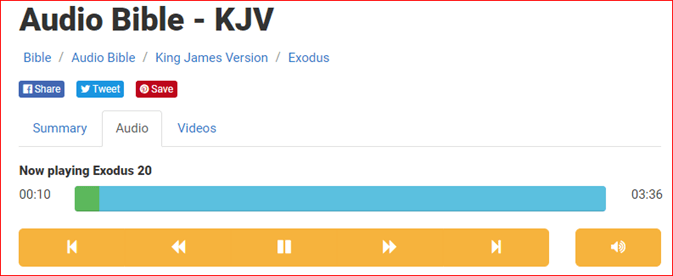
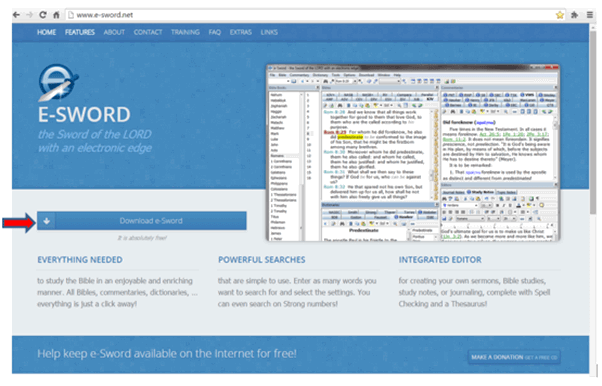
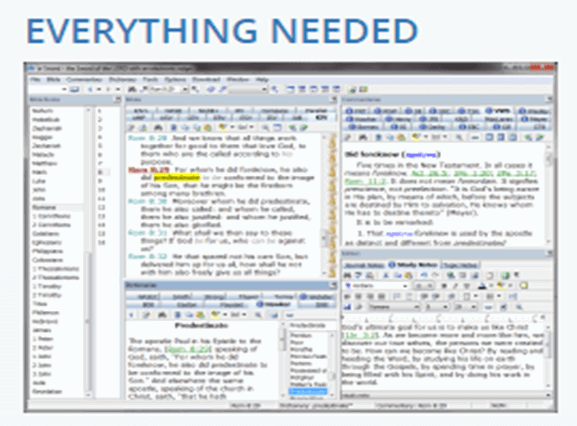
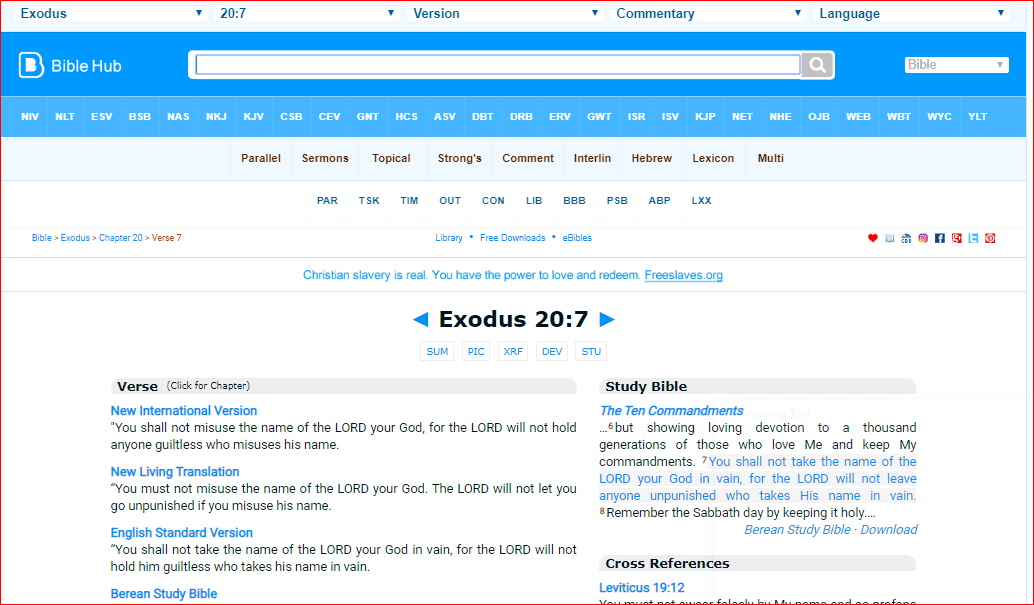
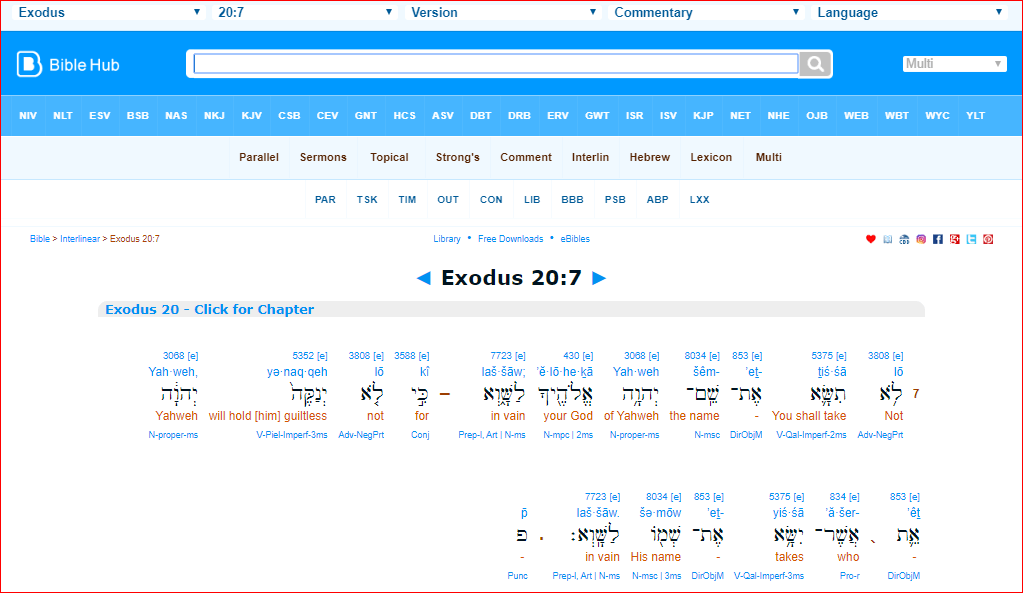

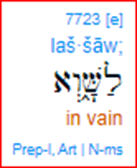
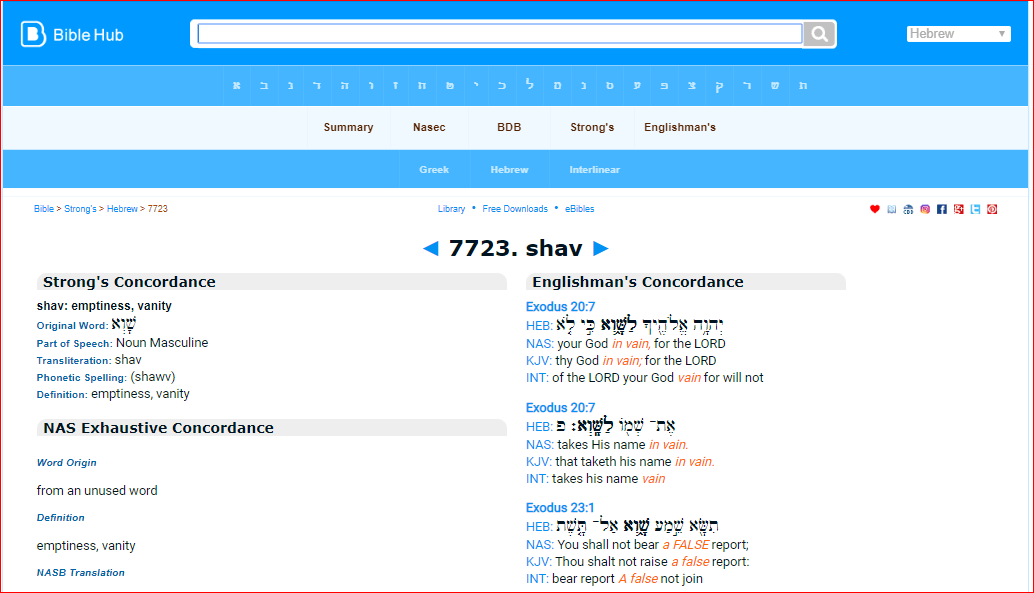
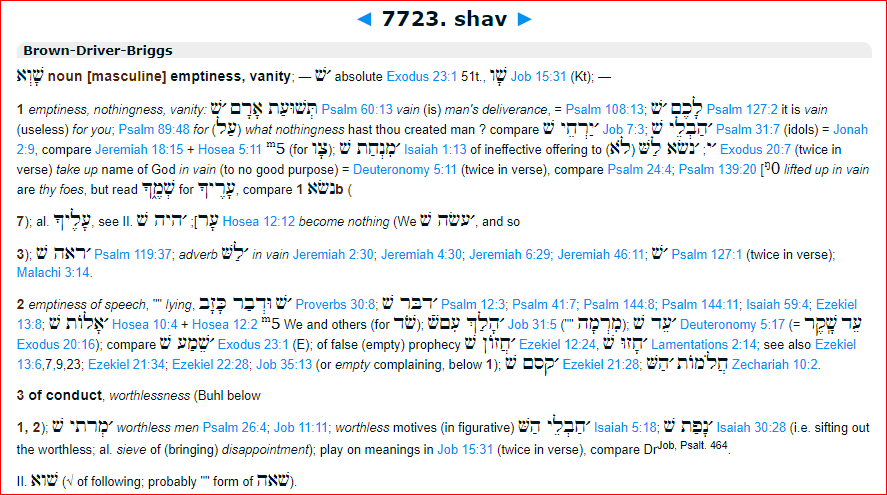
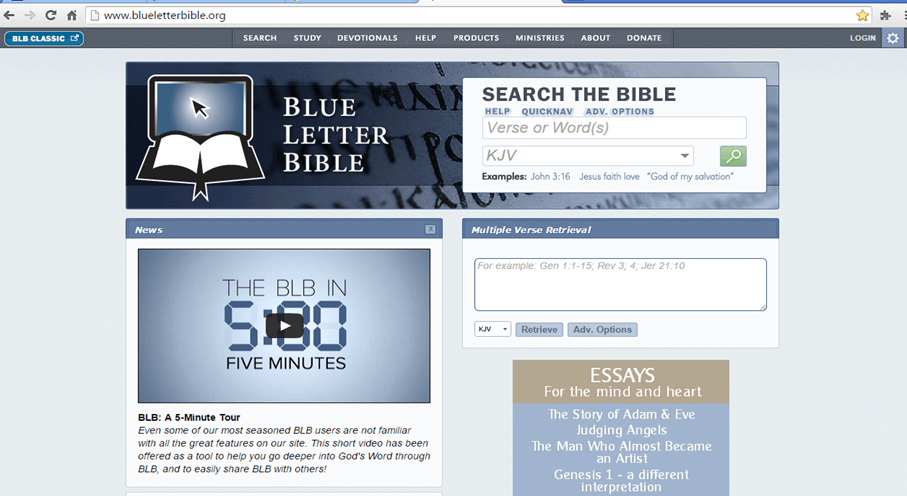 If you type in
If you type in 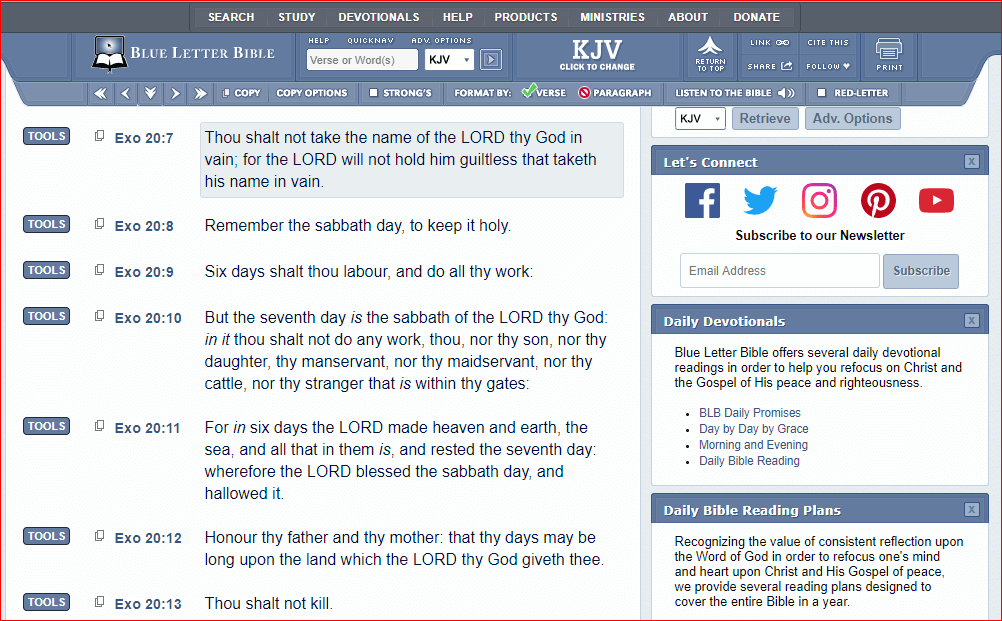
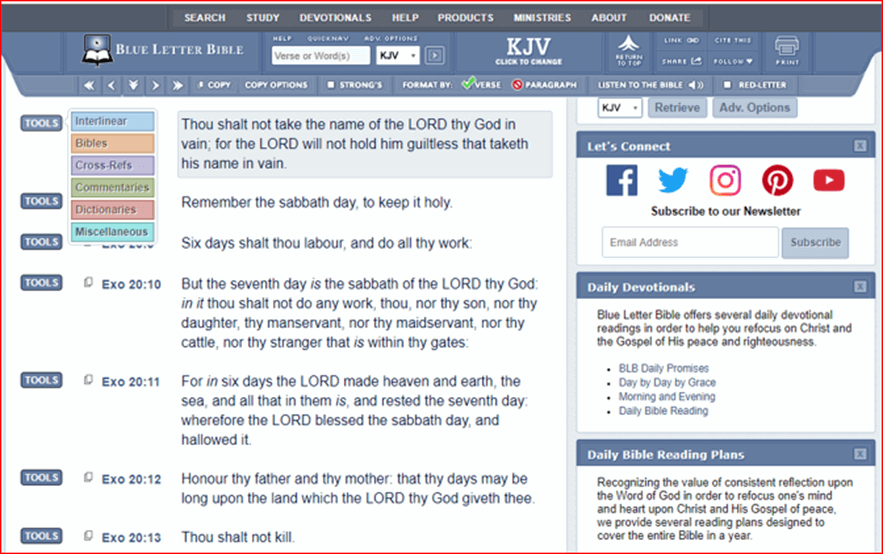
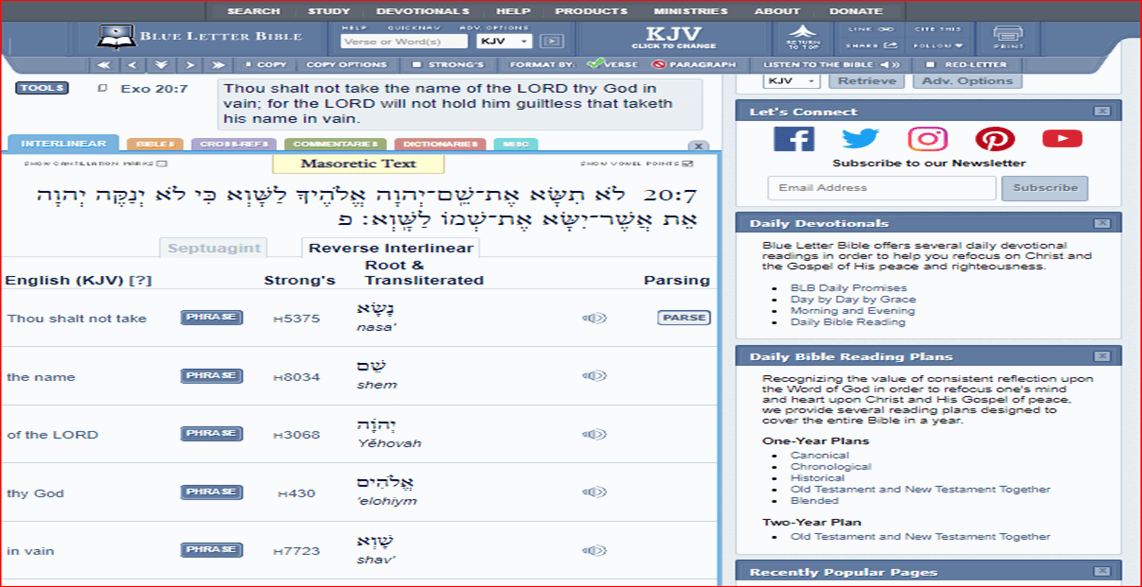
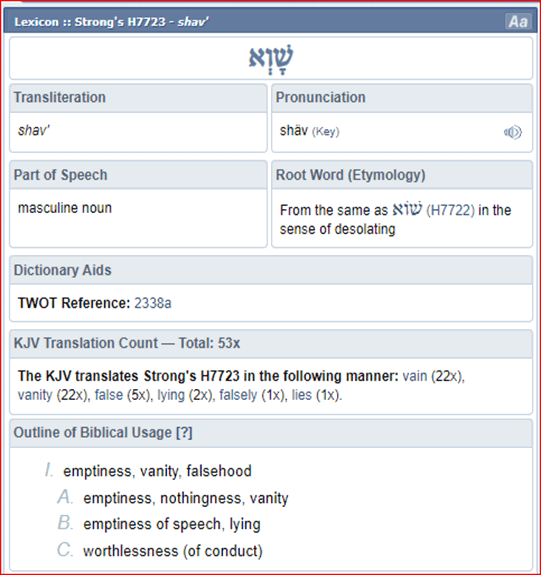
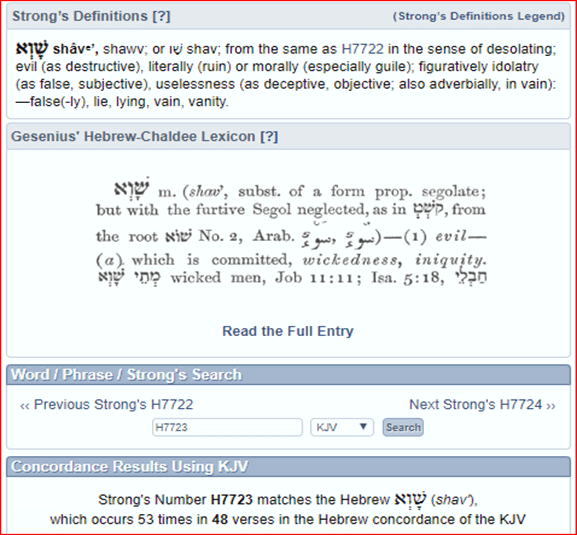
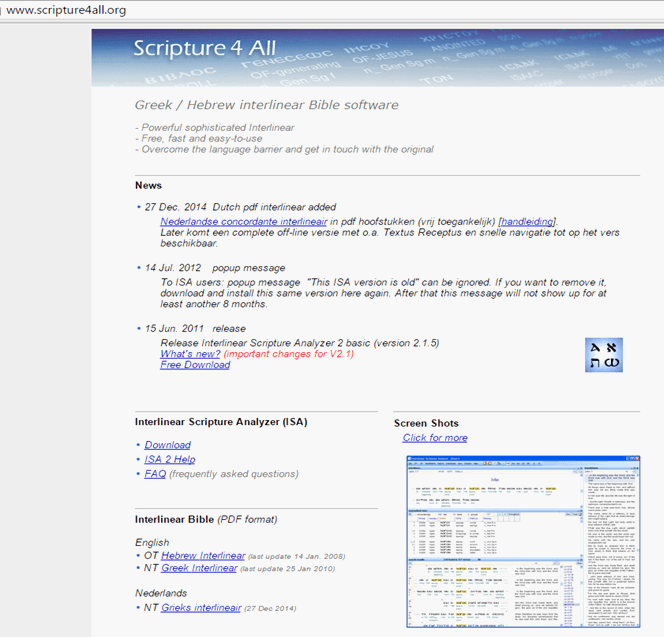
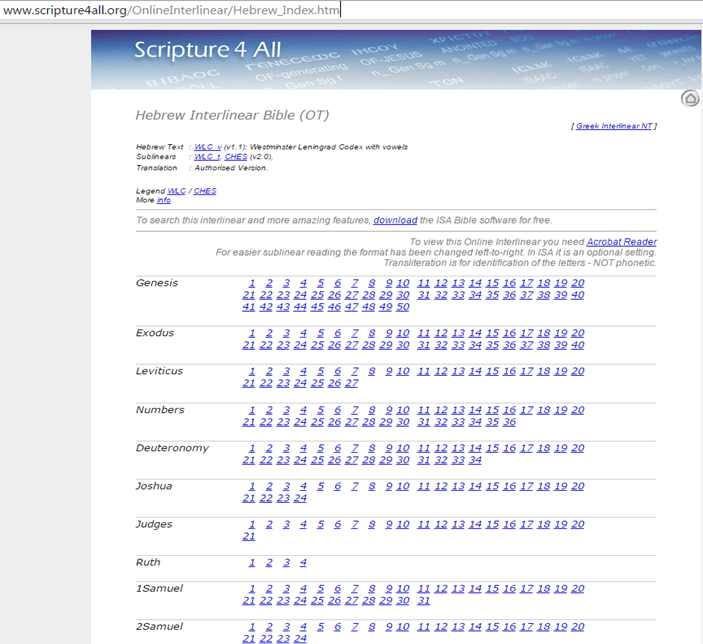


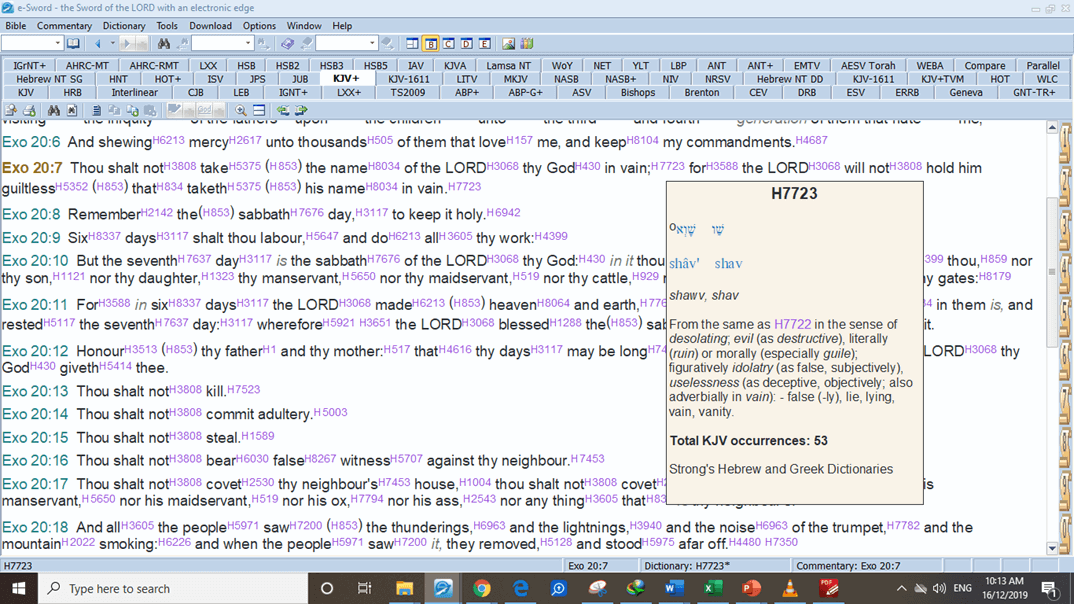
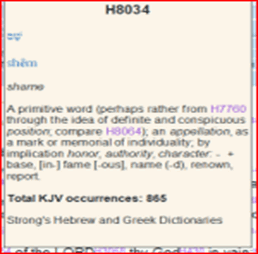
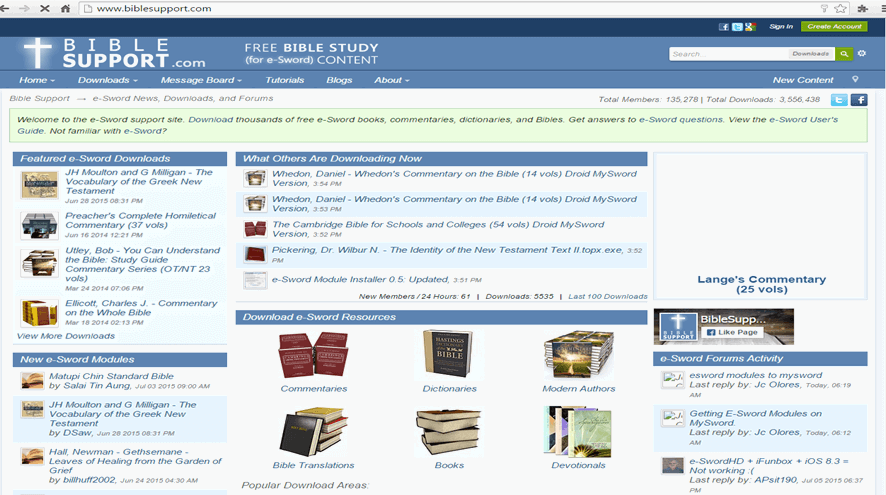
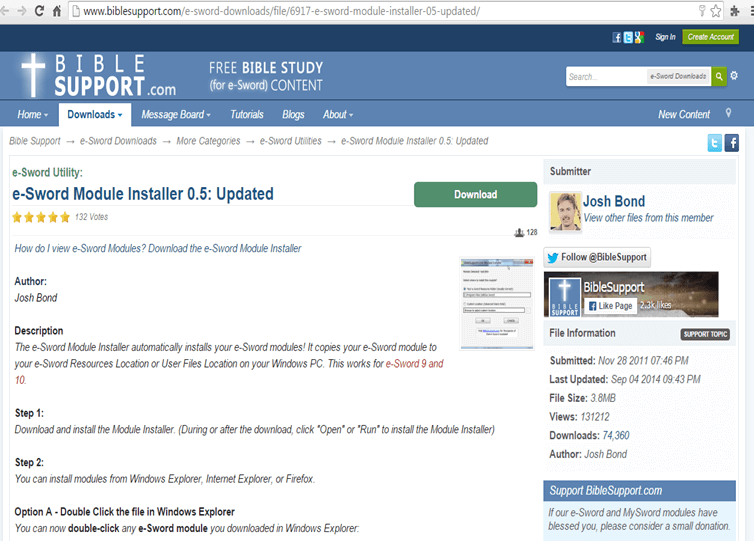
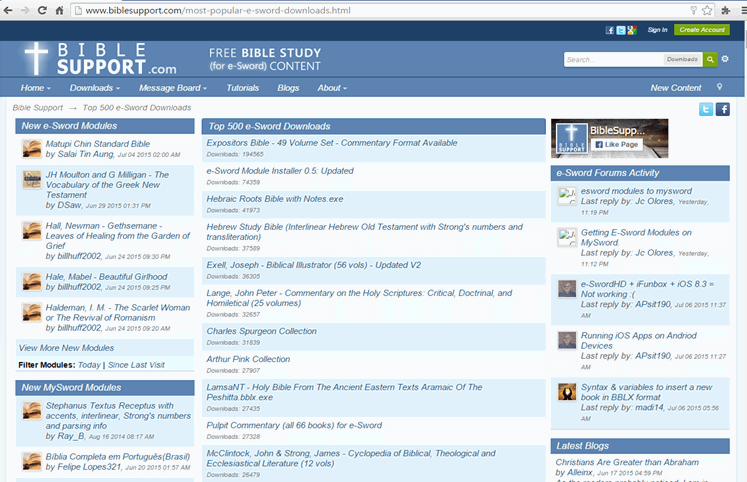
 Click the Download Tab at the top – the following window will open.
Click the Download Tab at the top – the following window will open.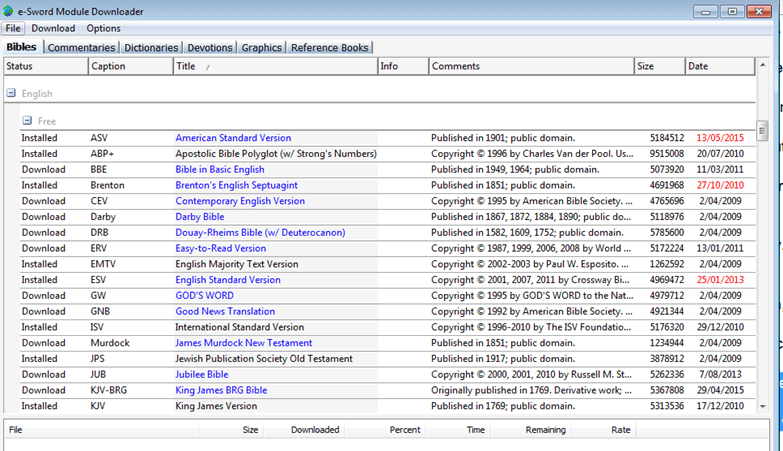
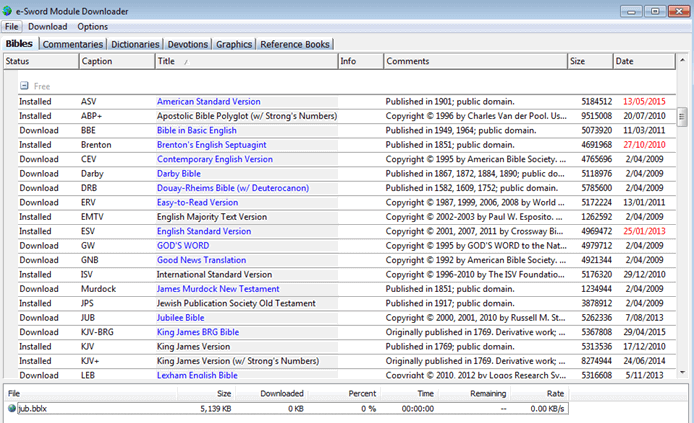
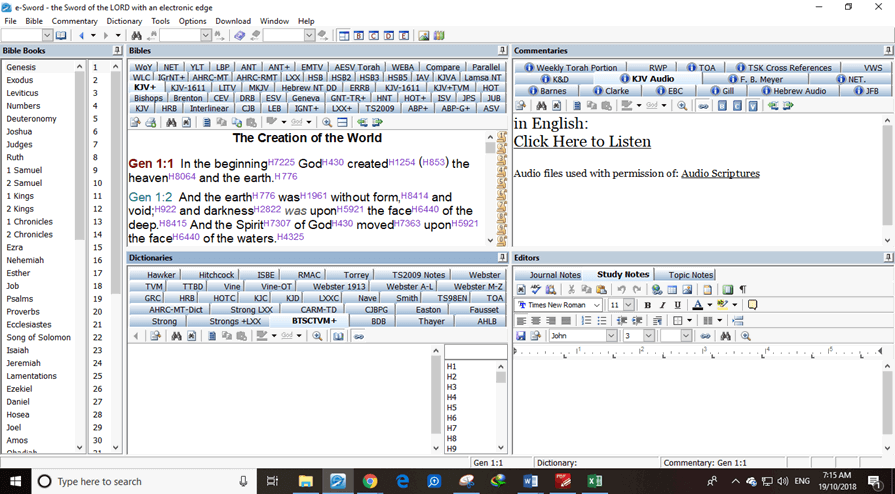
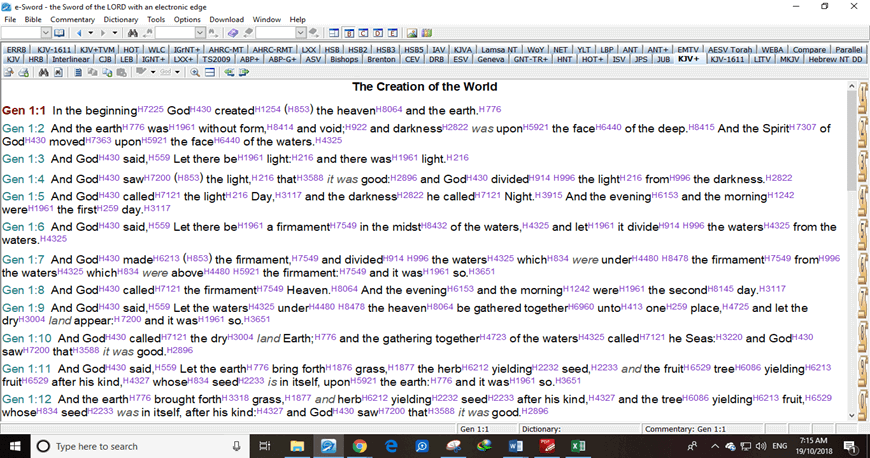
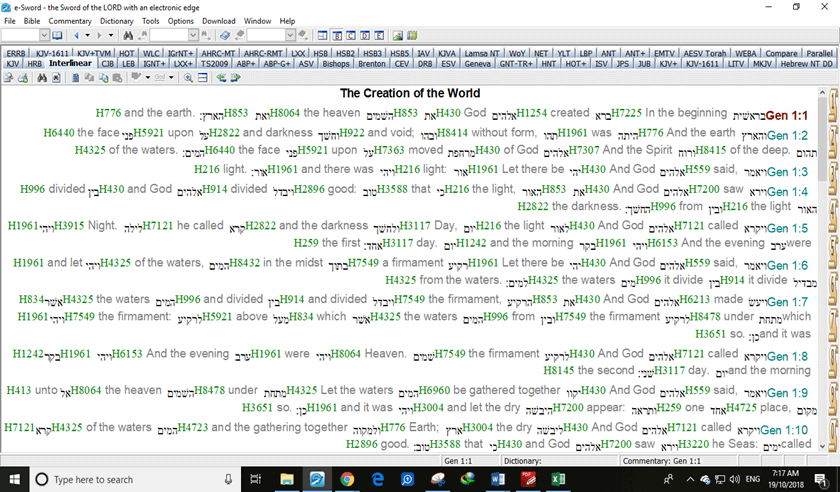

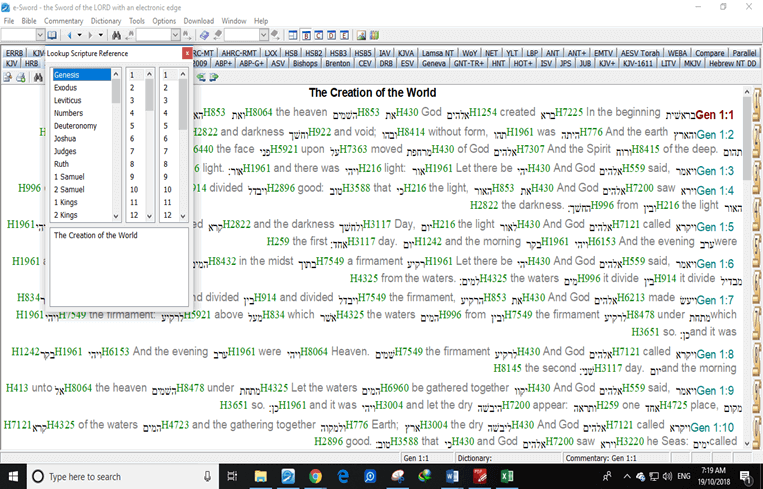
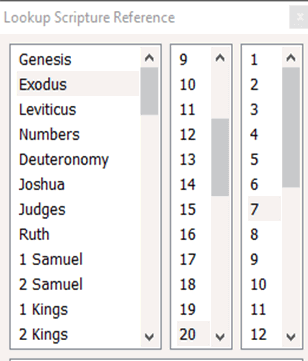
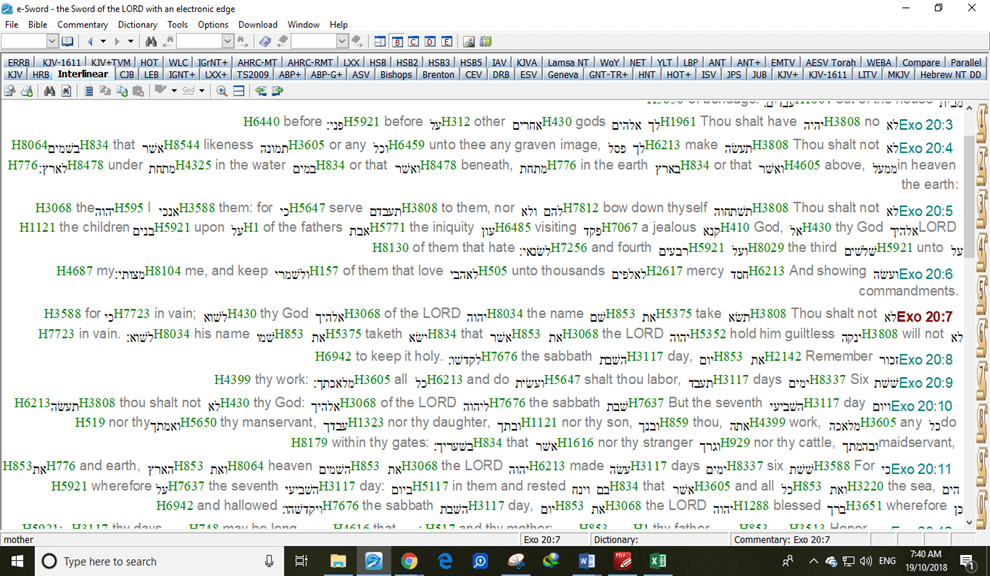
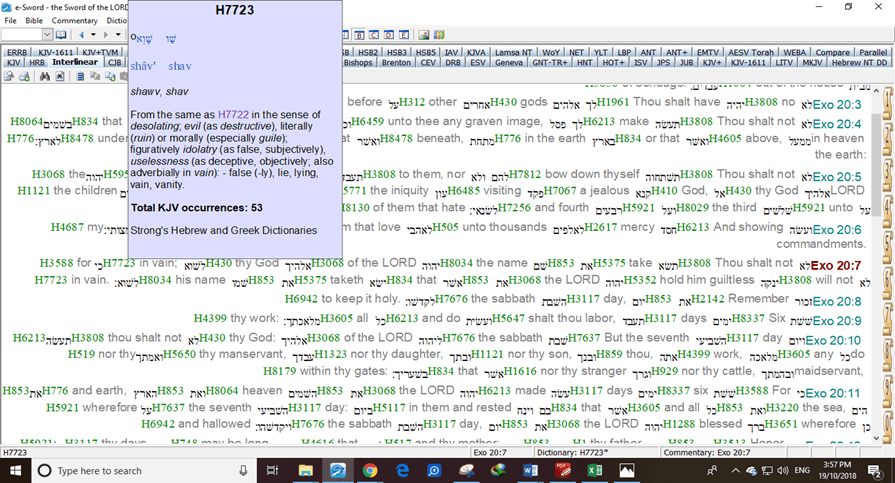
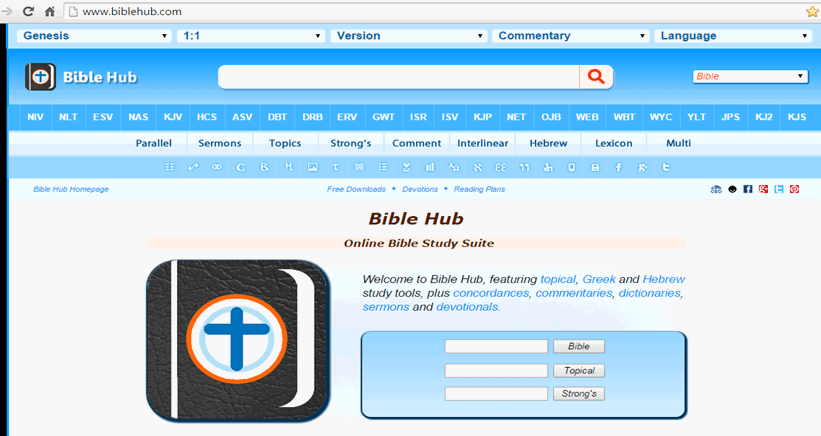
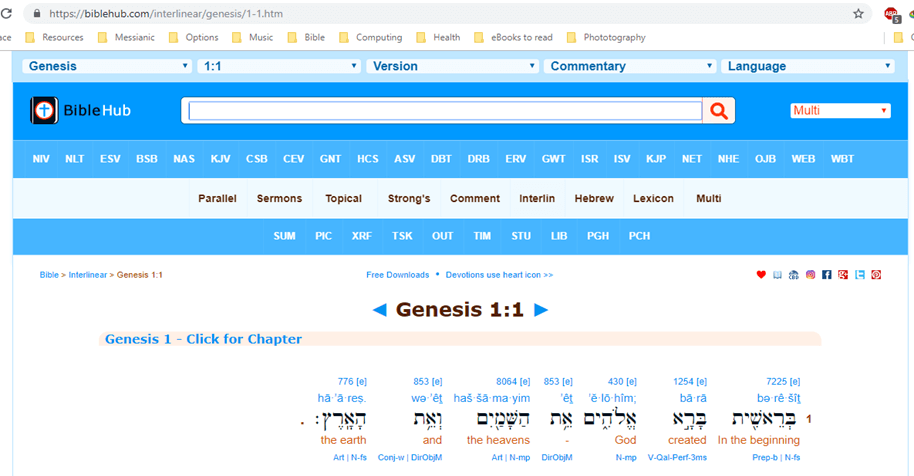 If we type in
If we type in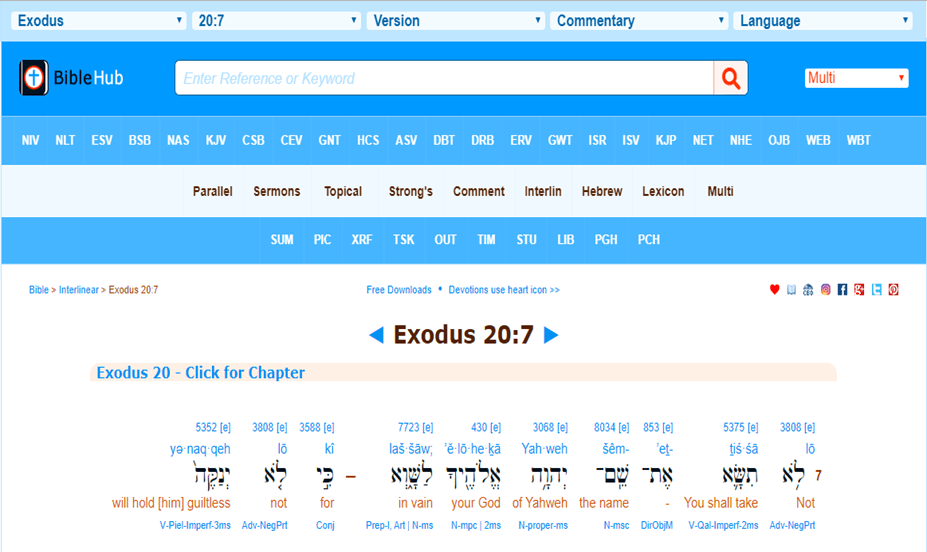 If we scroll down, we can view
If we scroll down, we can view 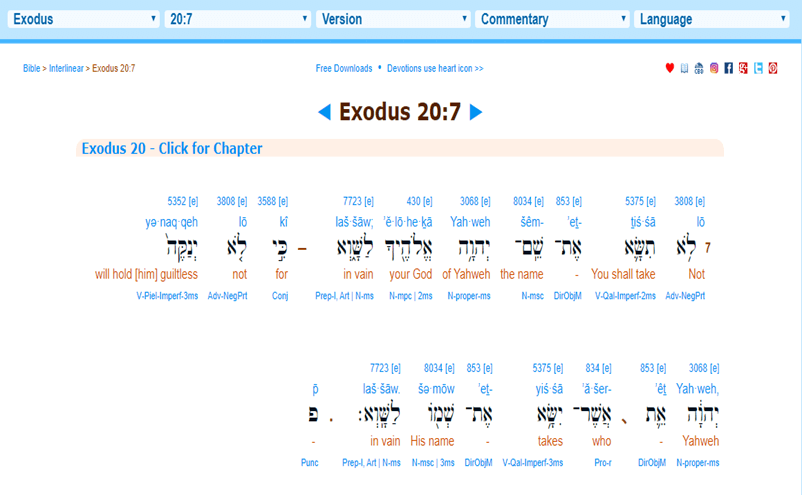
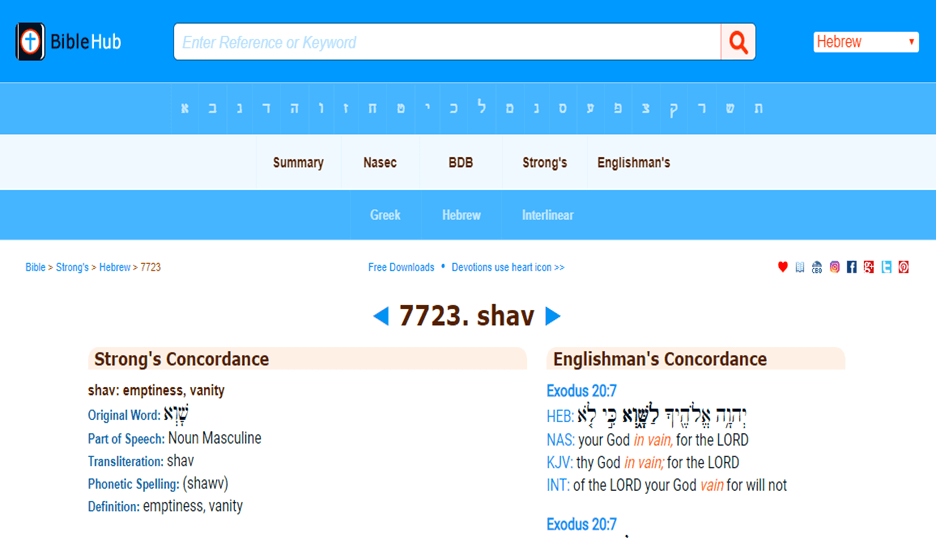 While this window contains a lot of useful & interesting information, for now, let’s click the BDB tab
While this window contains a lot of useful & interesting information, for now, let’s click the BDB tab 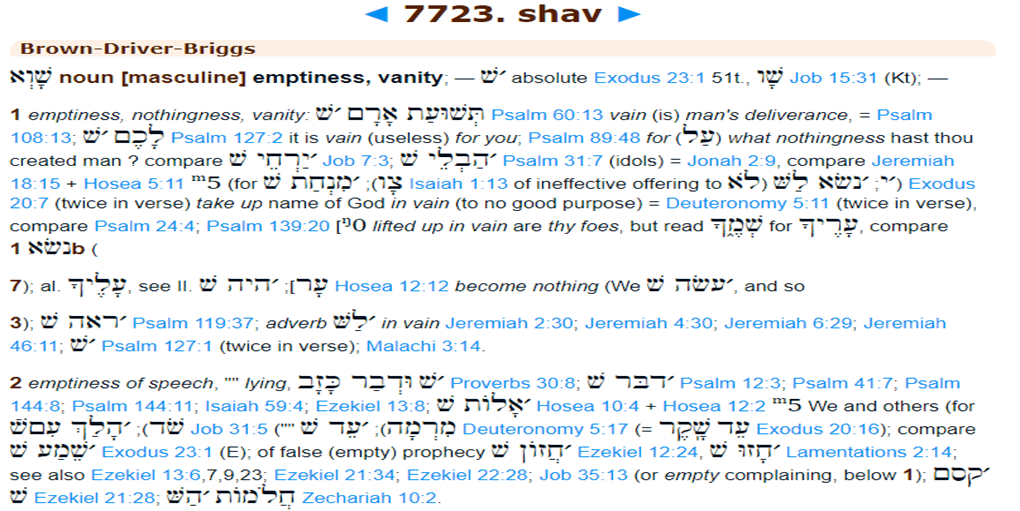

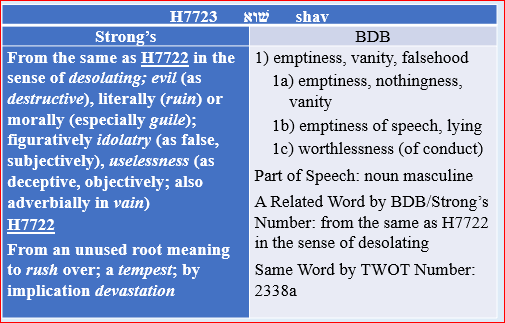


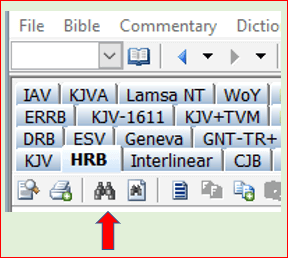
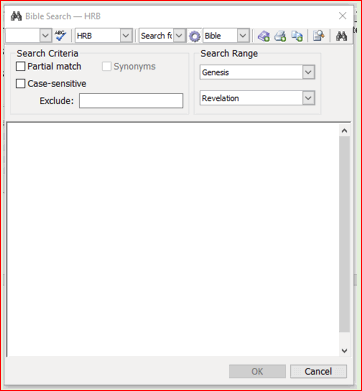
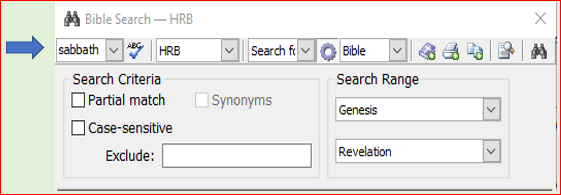
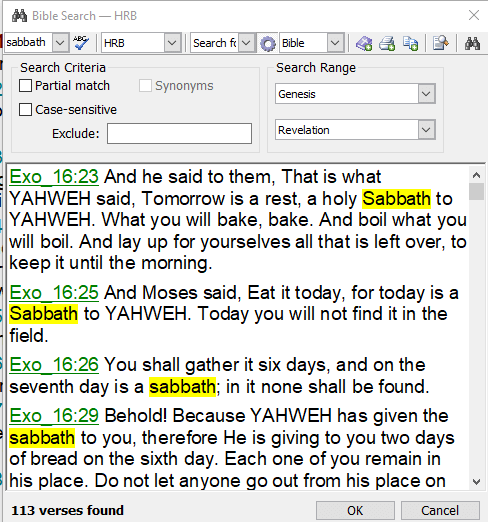
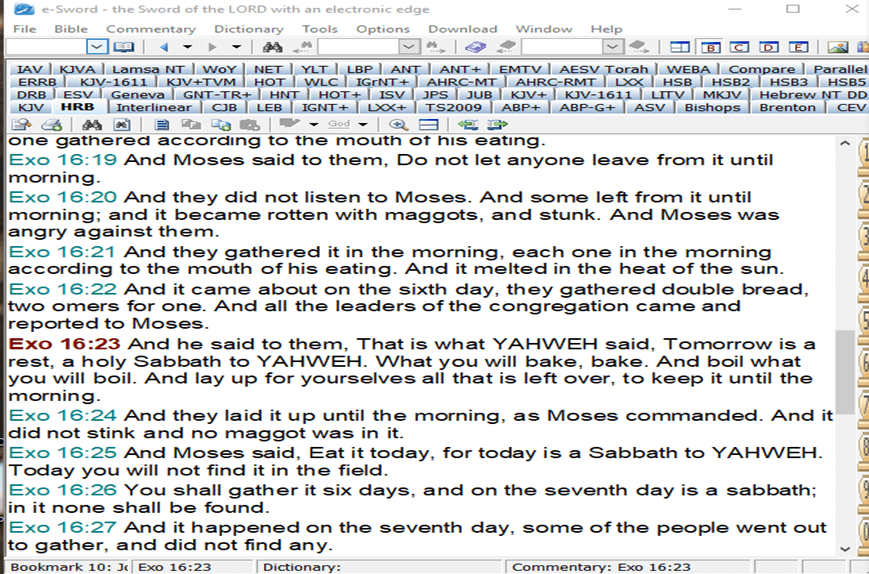
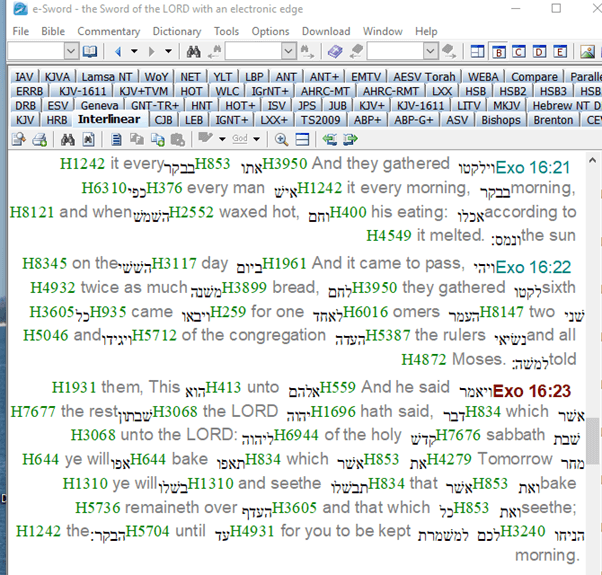

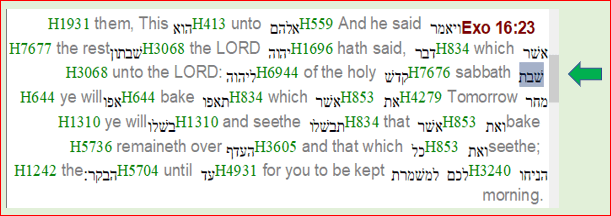
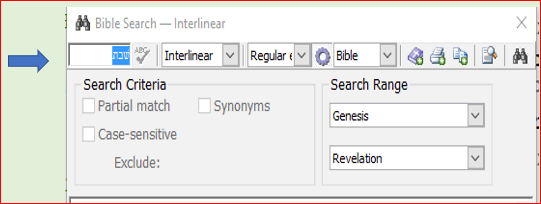
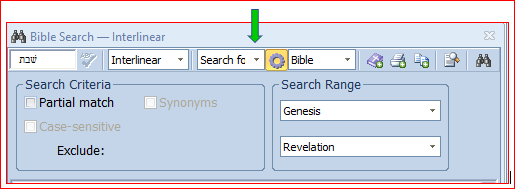
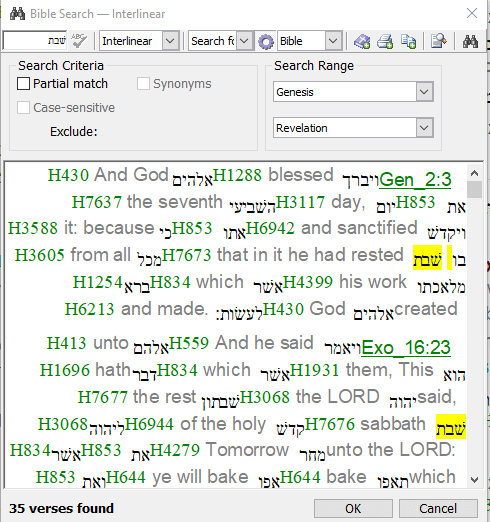

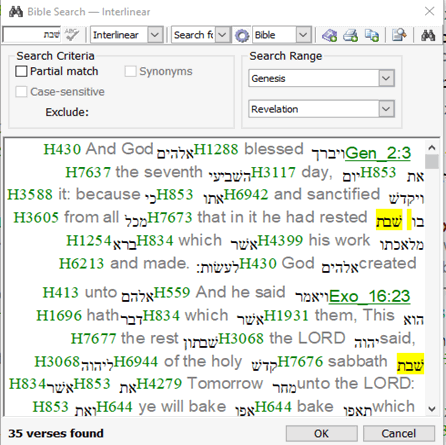

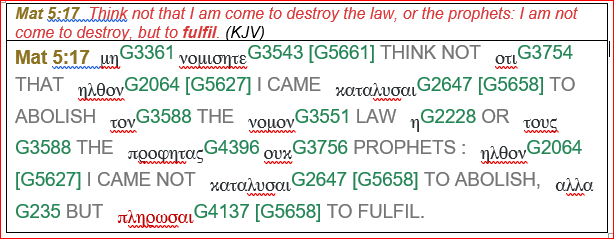

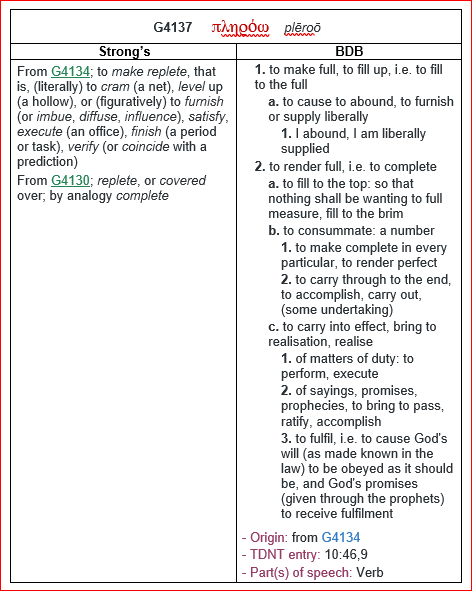 Many Christians believe, based on
Many Christians believe, based on 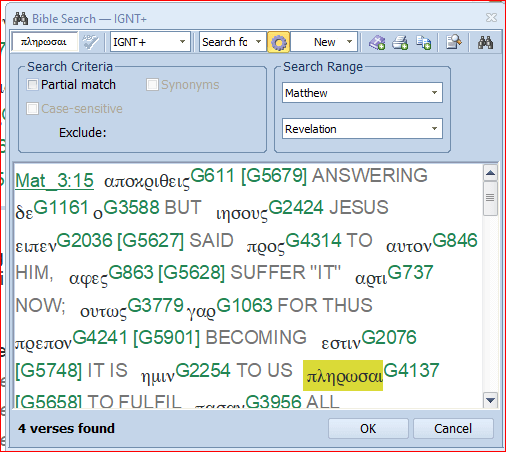




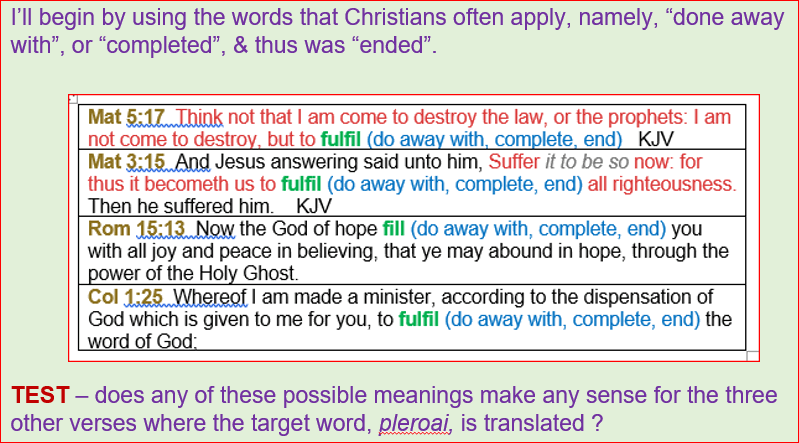
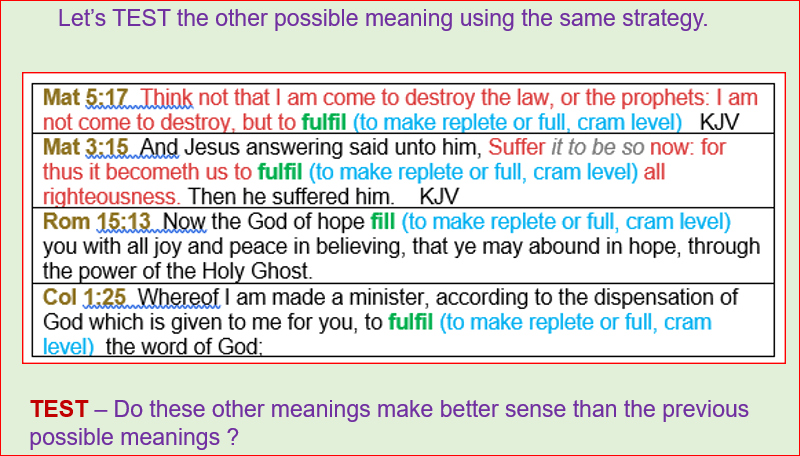

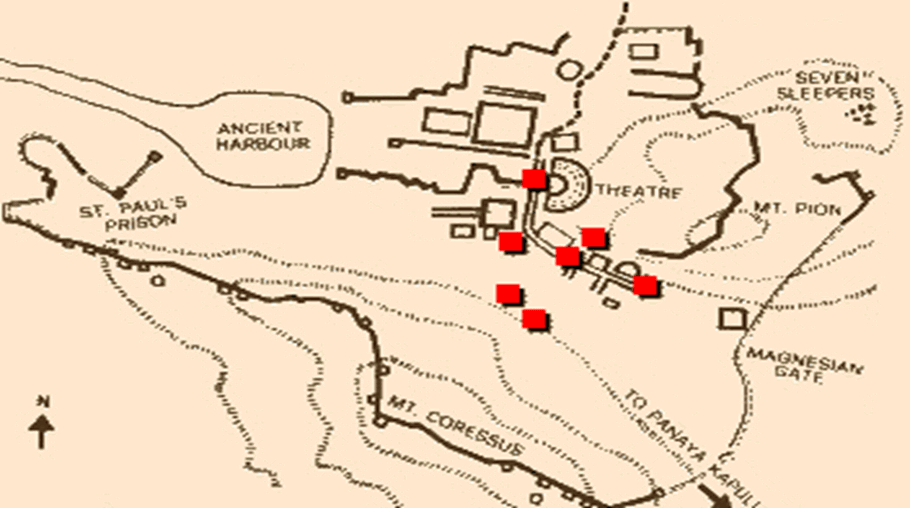
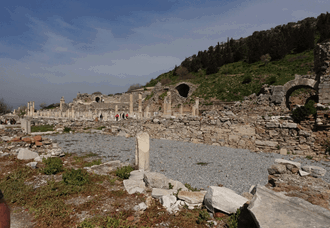
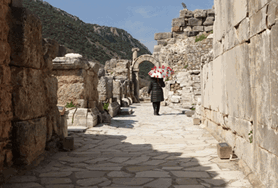
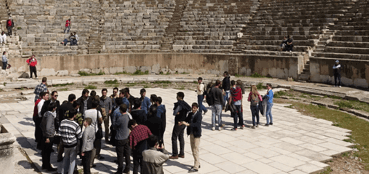
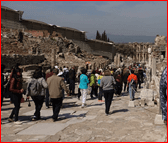





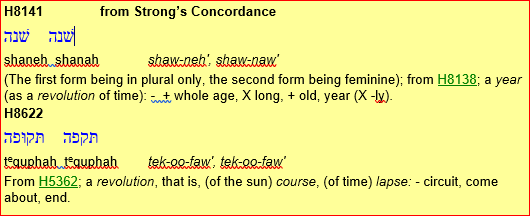


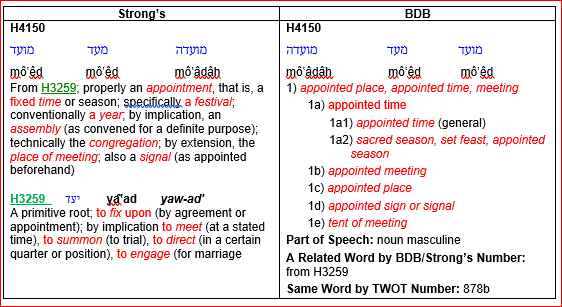
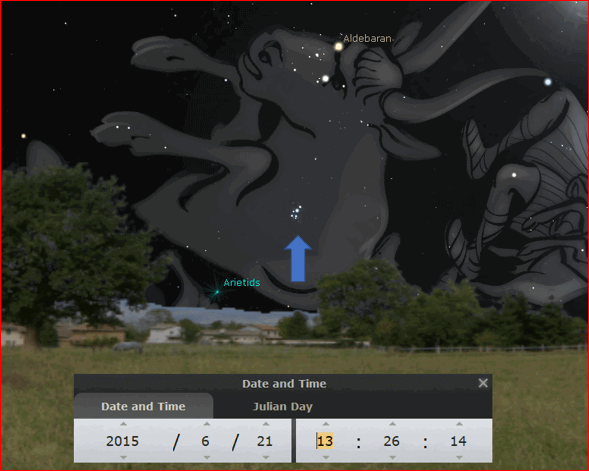
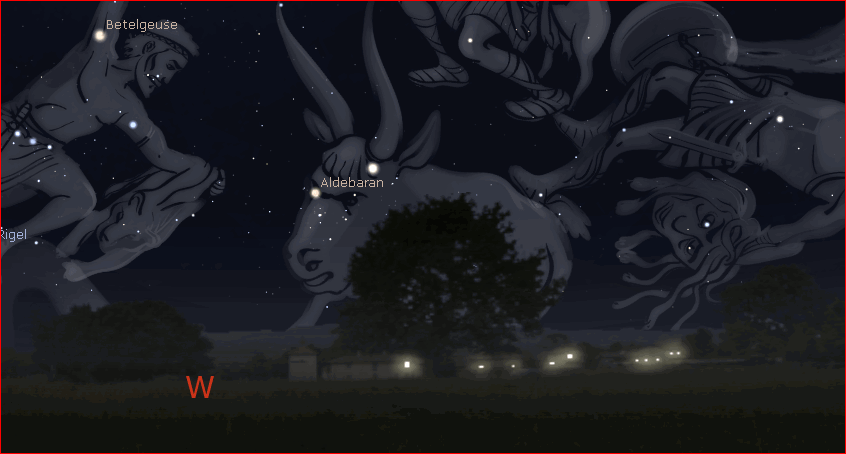
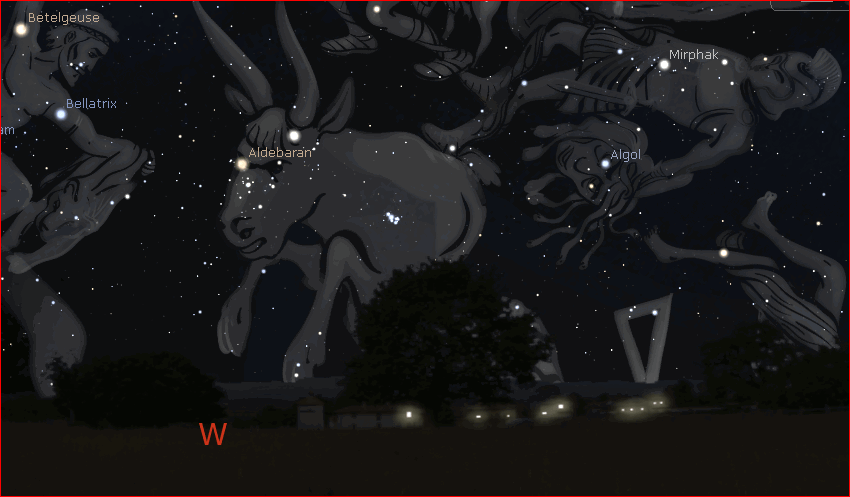
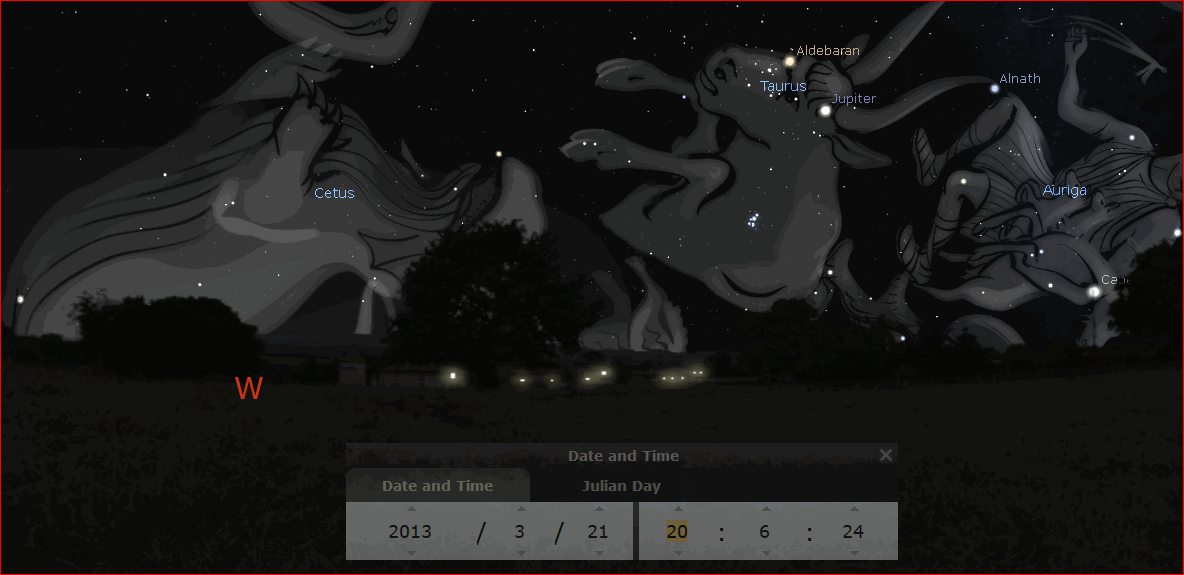
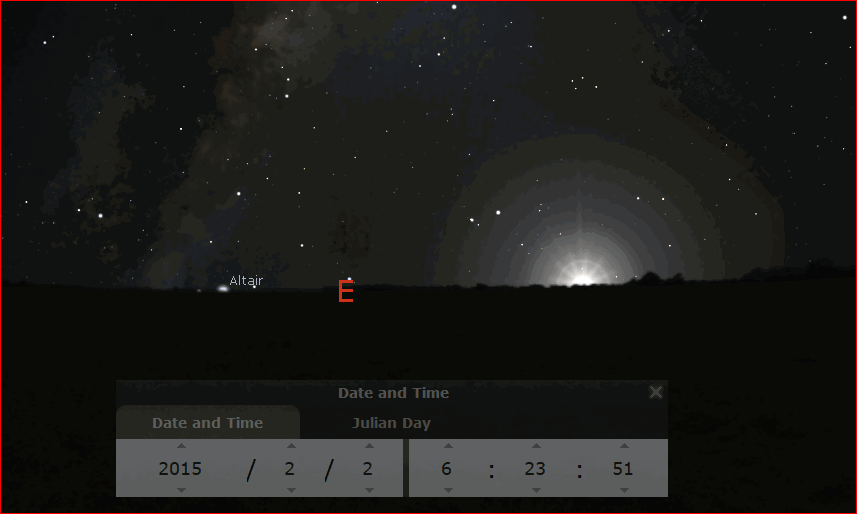
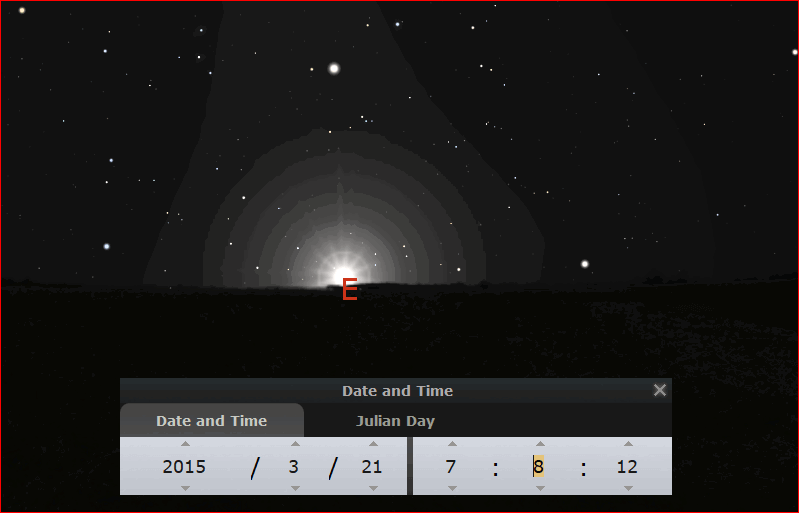
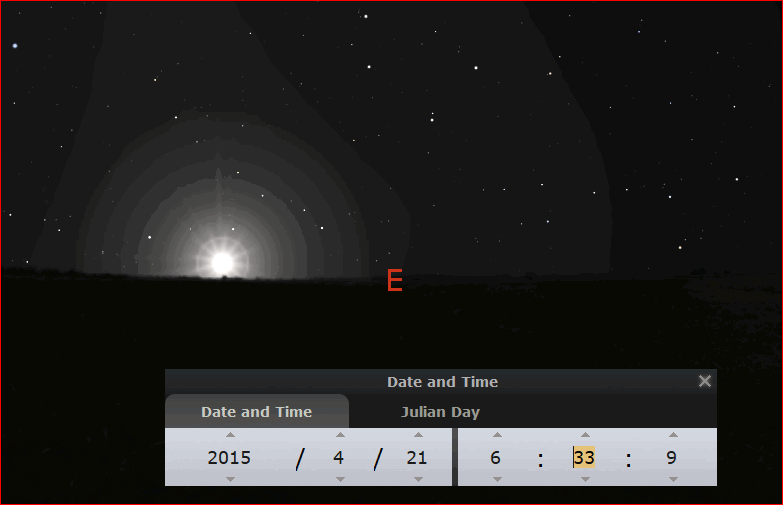
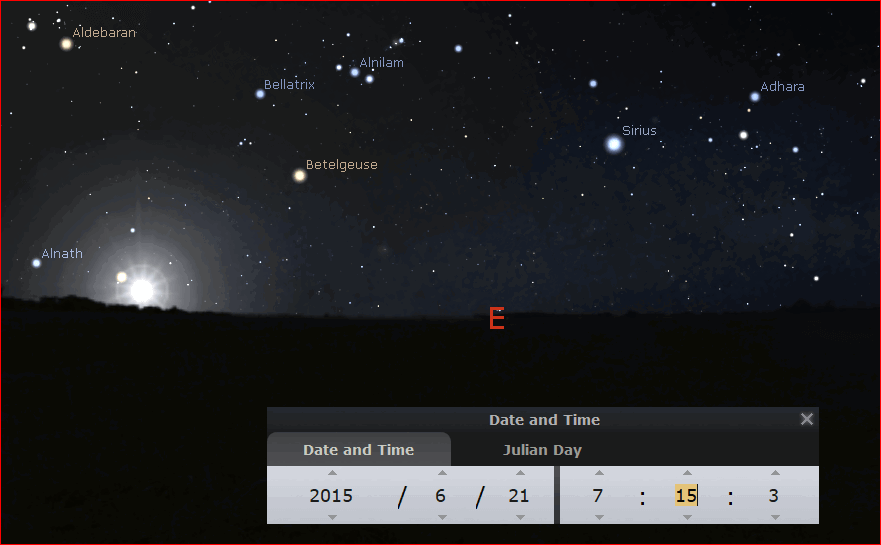
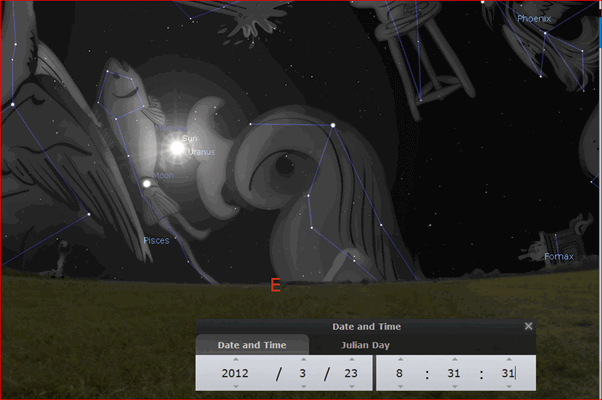
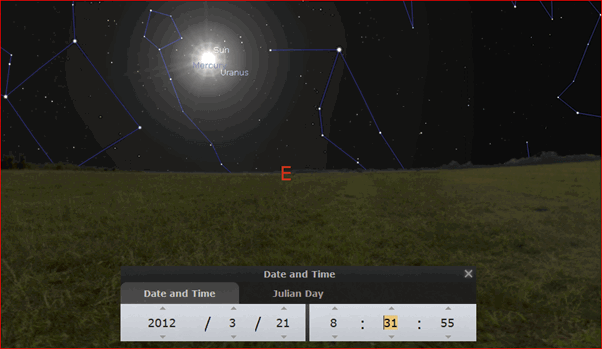
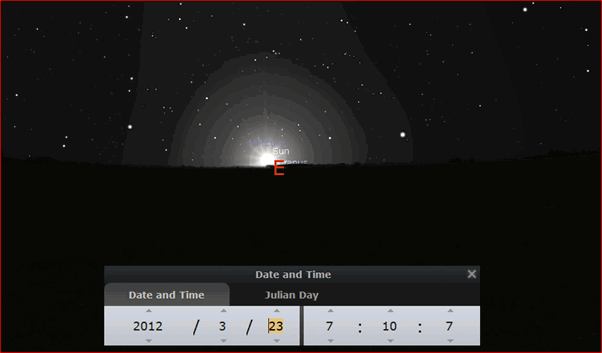
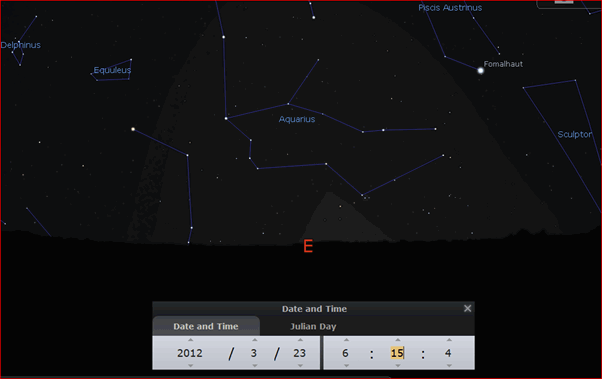
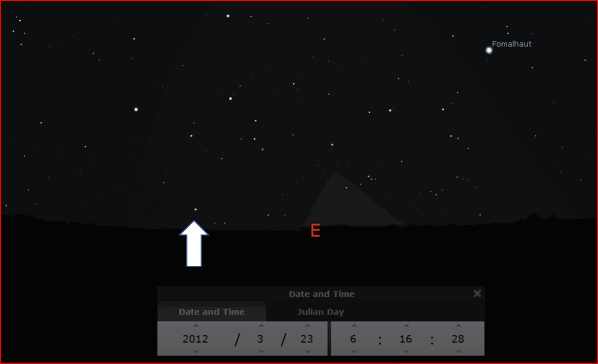
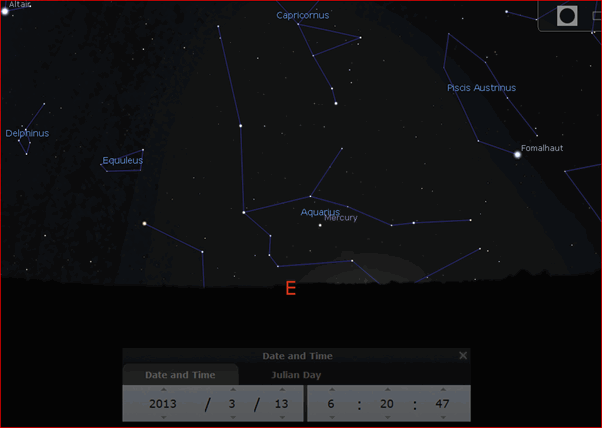
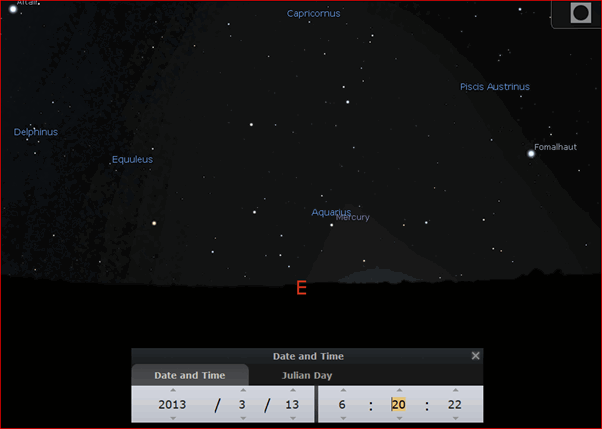
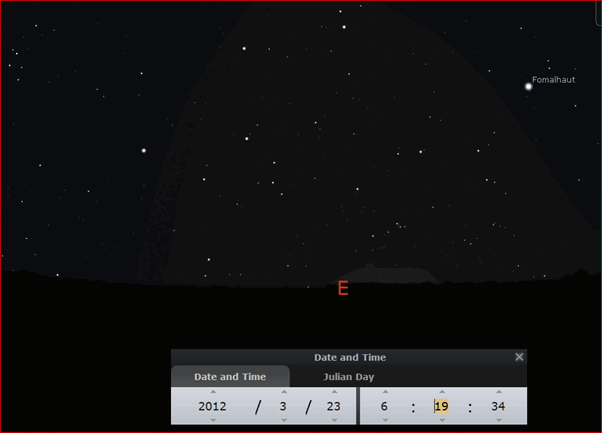
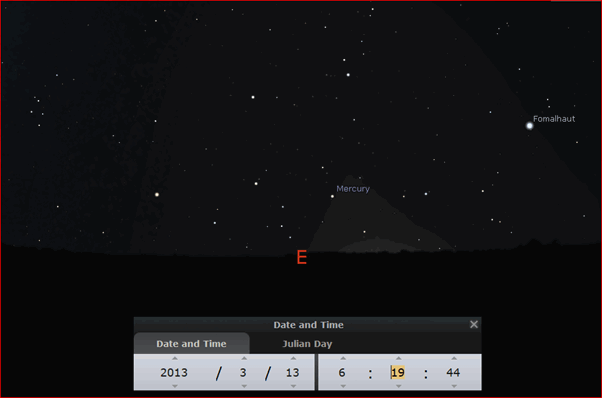
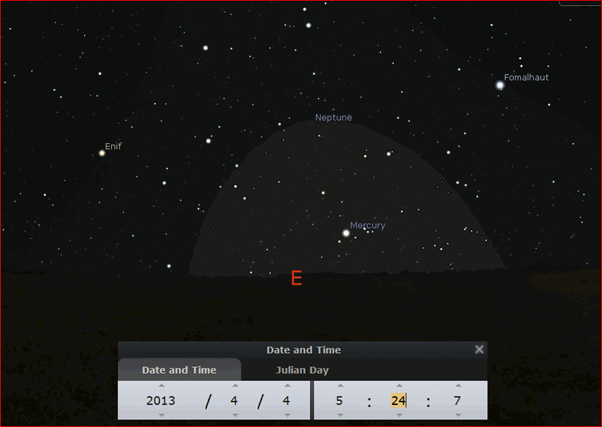
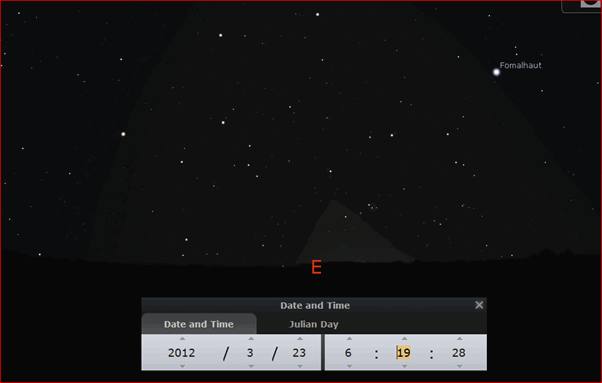
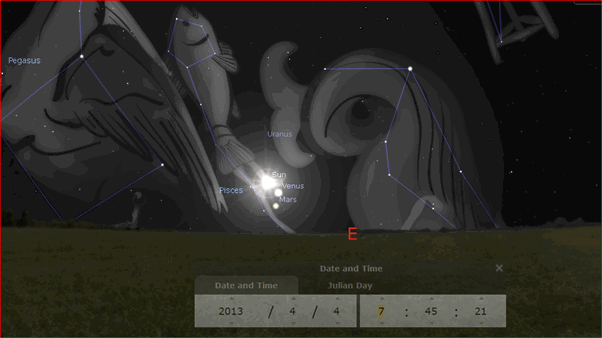
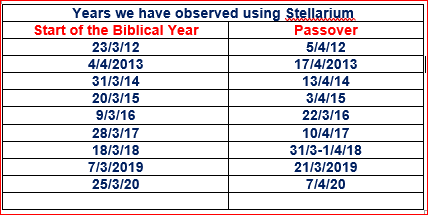
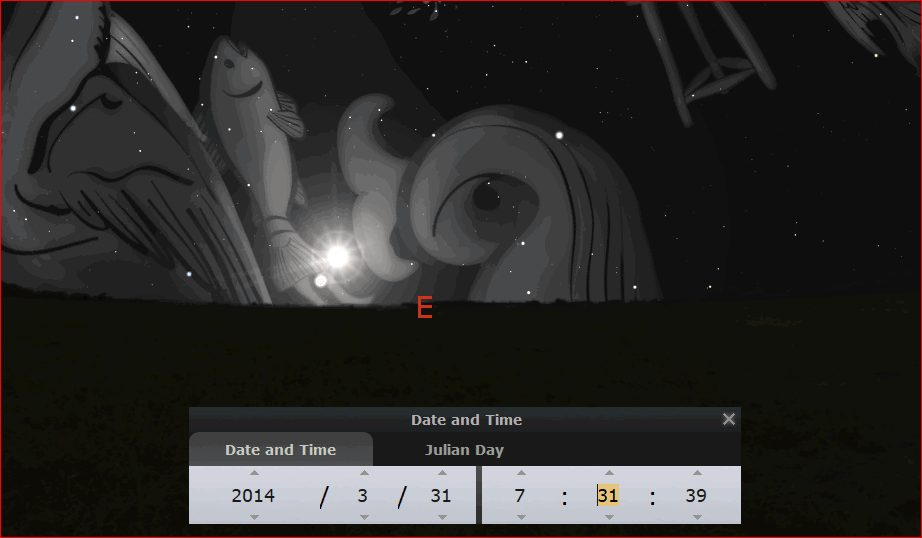
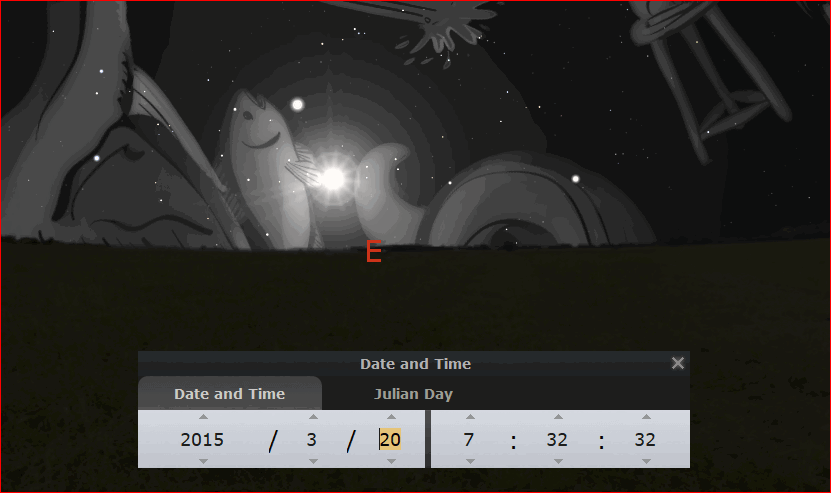
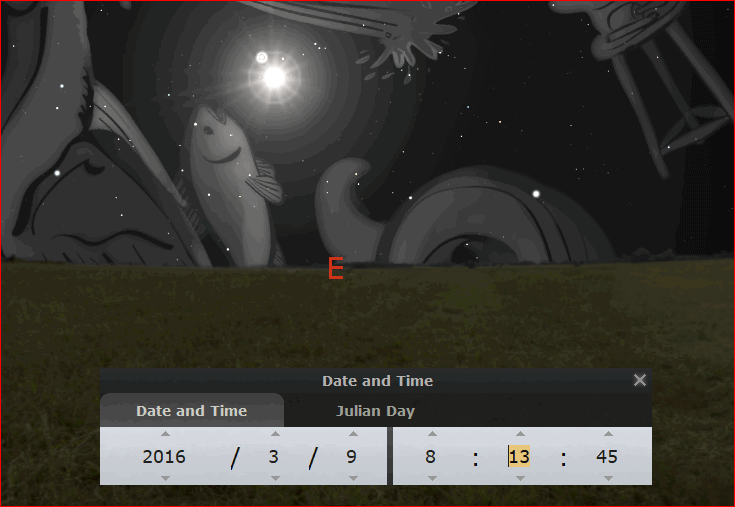
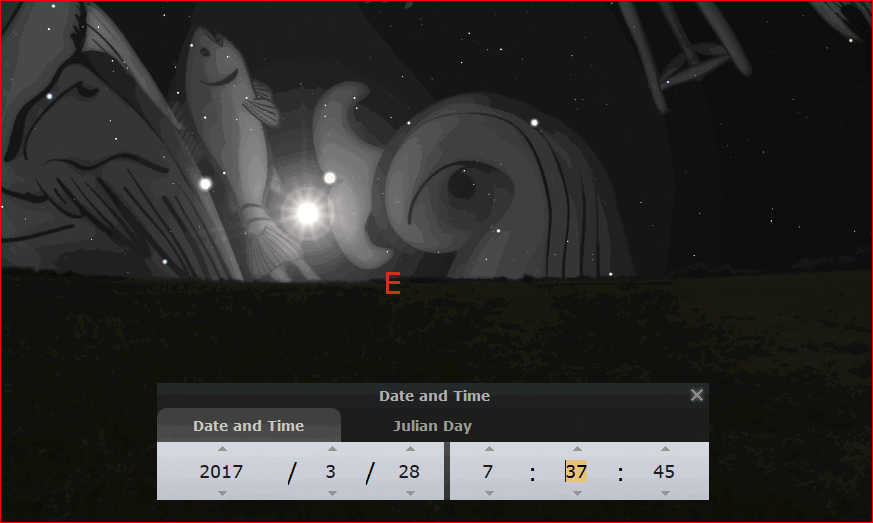
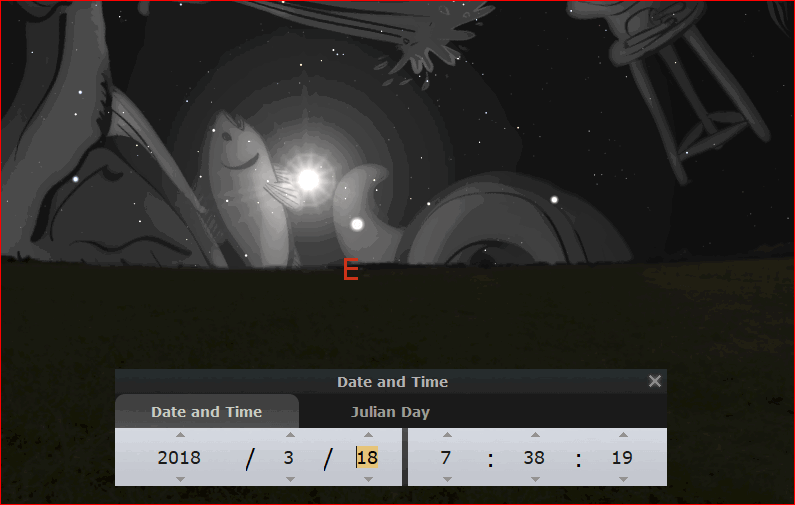
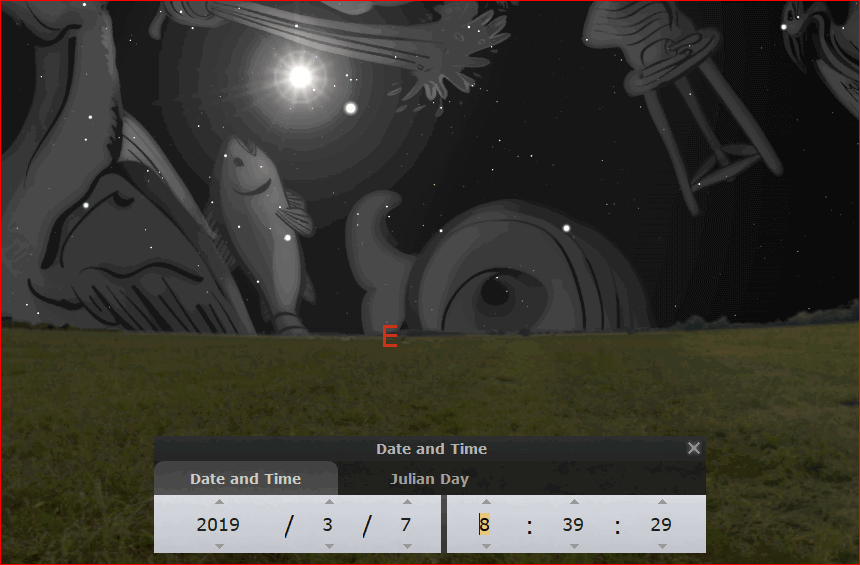
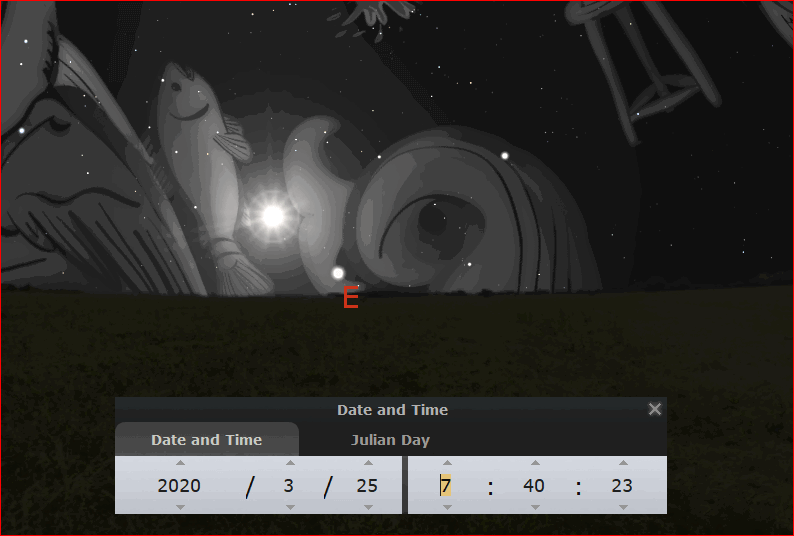
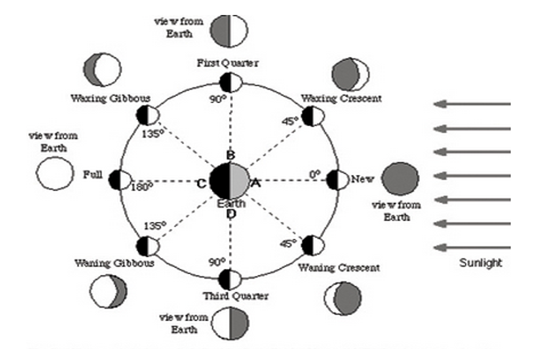
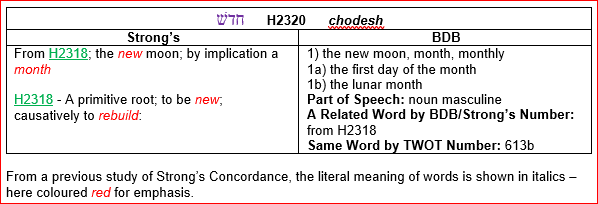

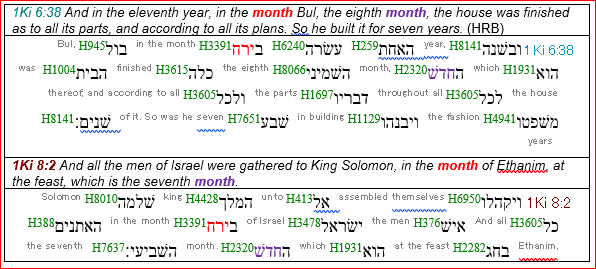
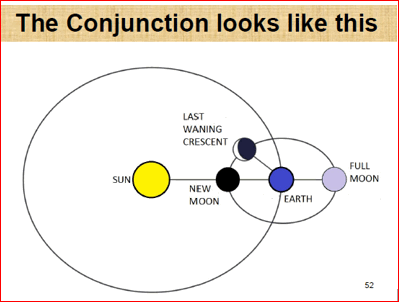
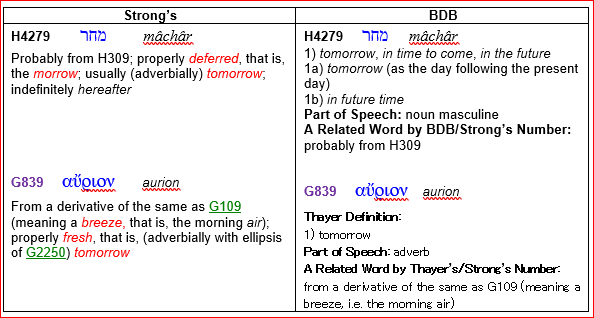
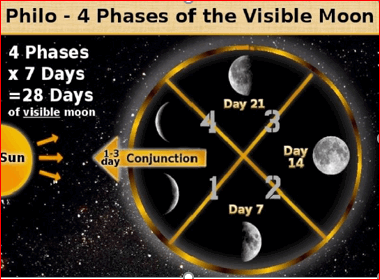


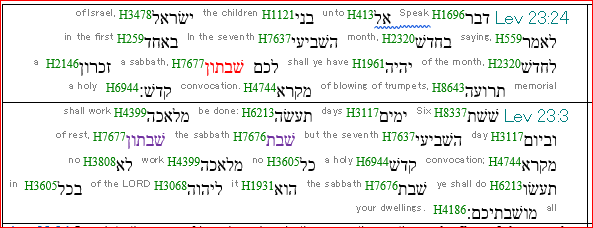
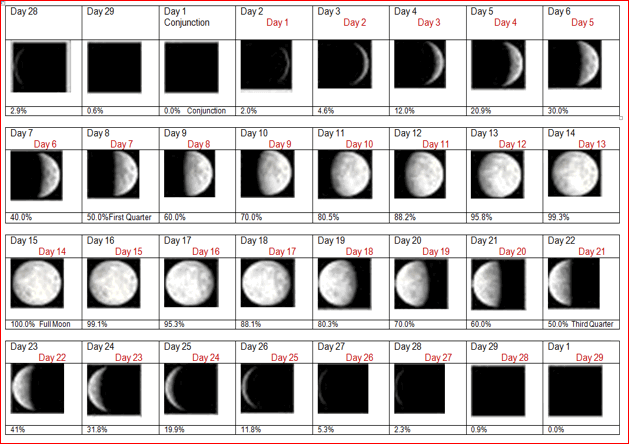

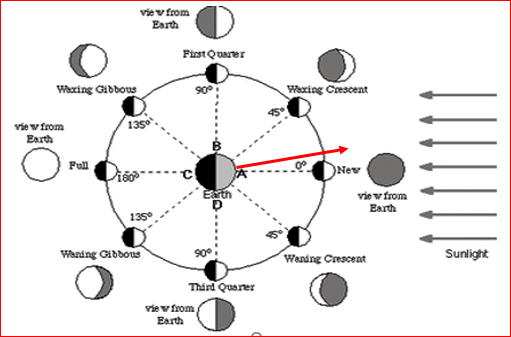
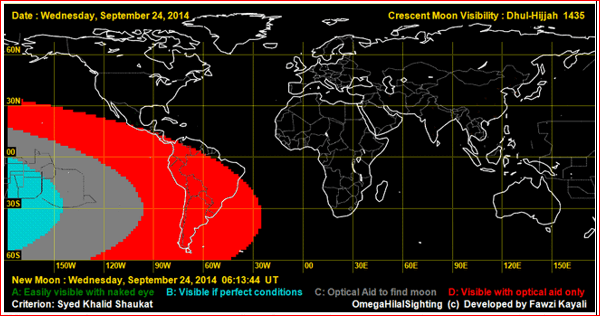
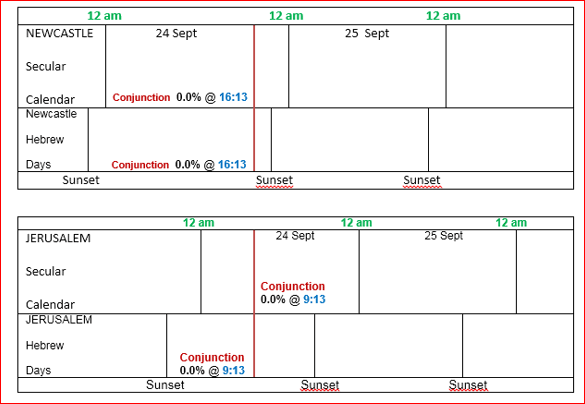
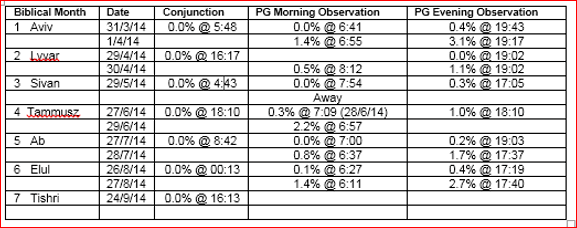





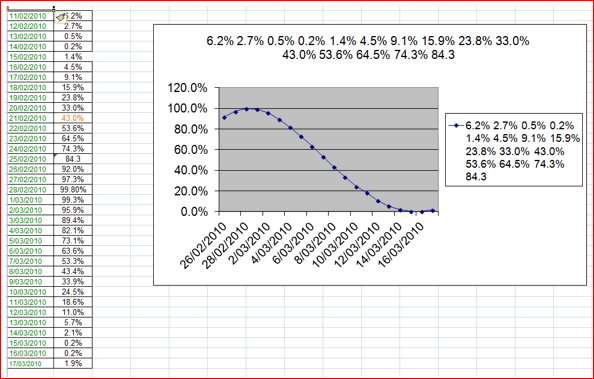
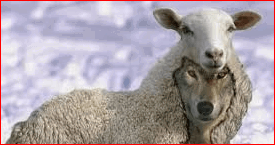
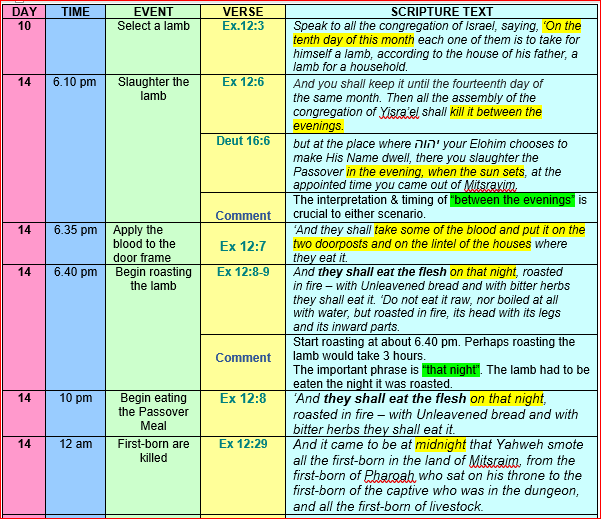
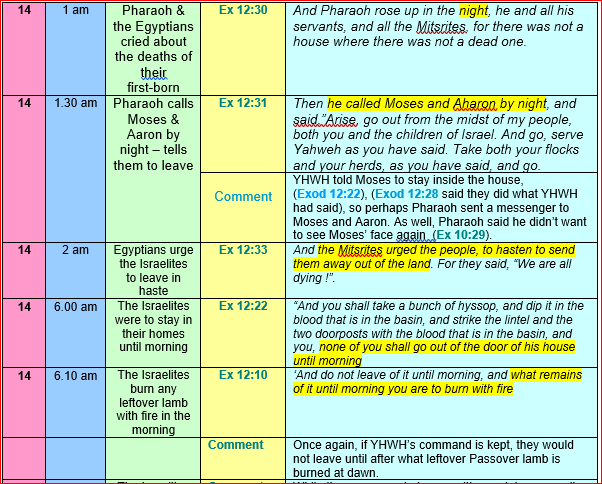
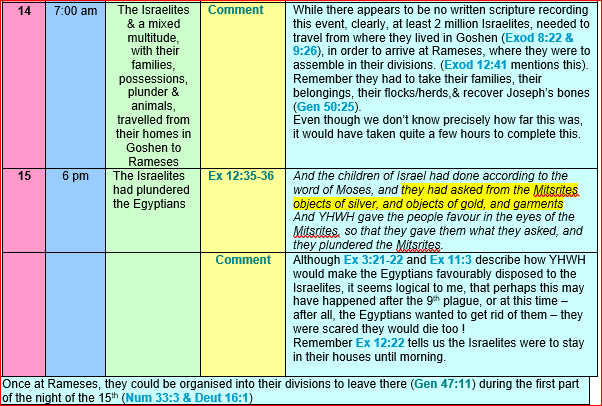
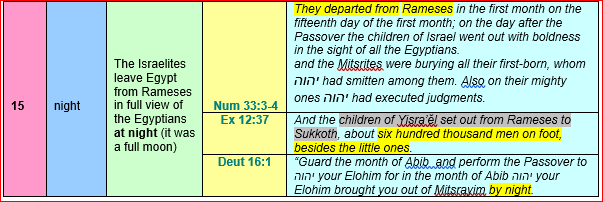
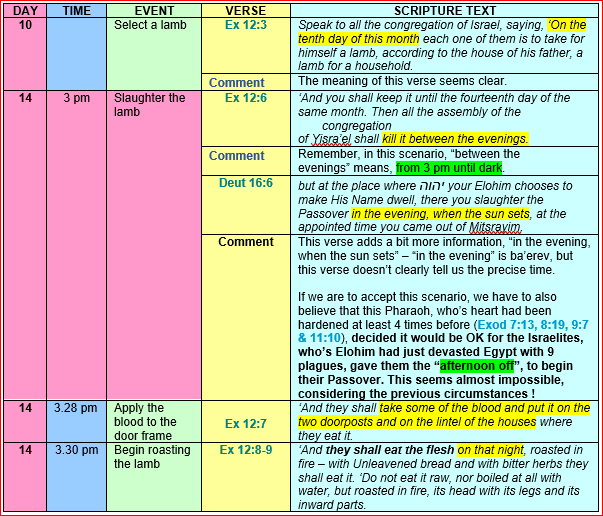
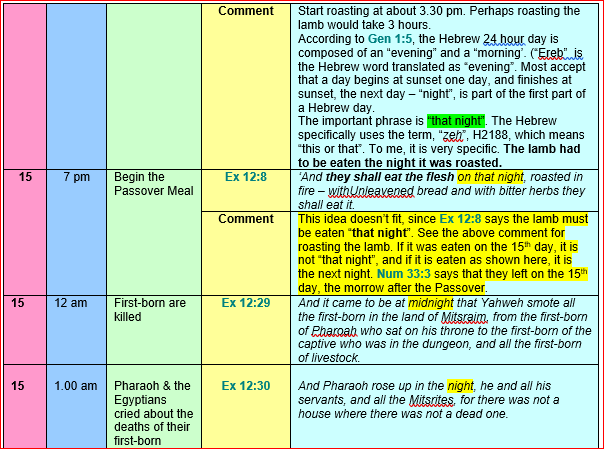
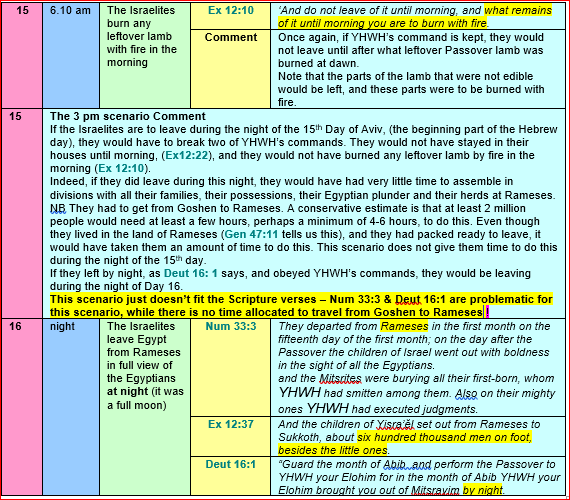
 If we check Strong's Concordance & Thayer's Lexicon, we see that clearly, from these two witnesses, G2073, hespera, means “evening”.
If we check Strong's Concordance & Thayer's Lexicon, we see that clearly, from these two witnesses, G2073, hespera, means “evening”.